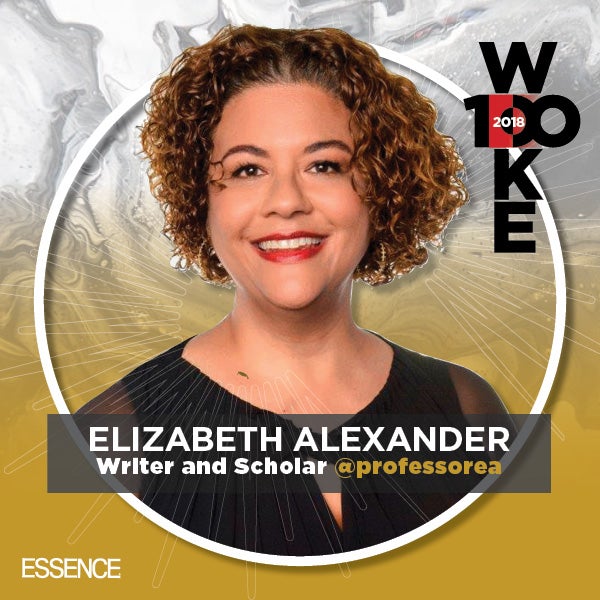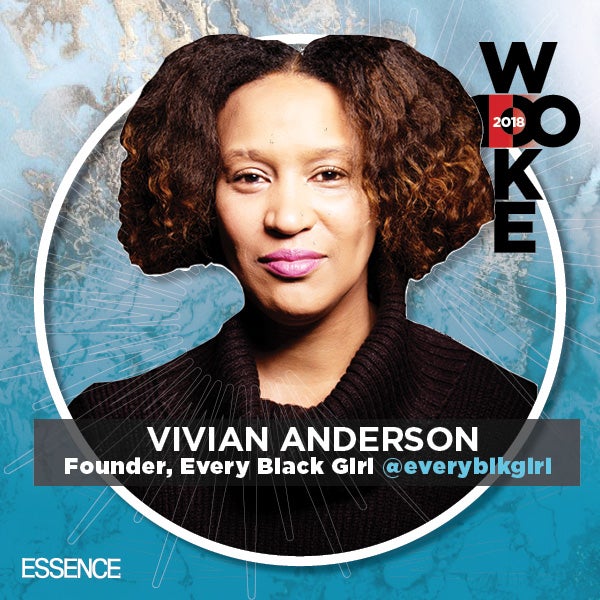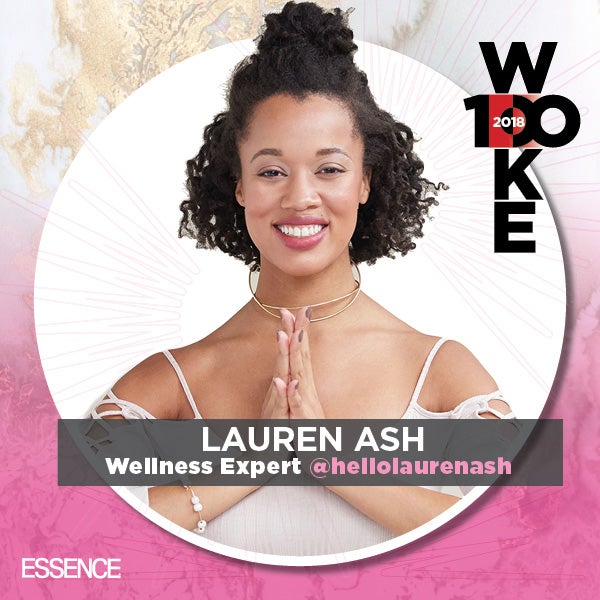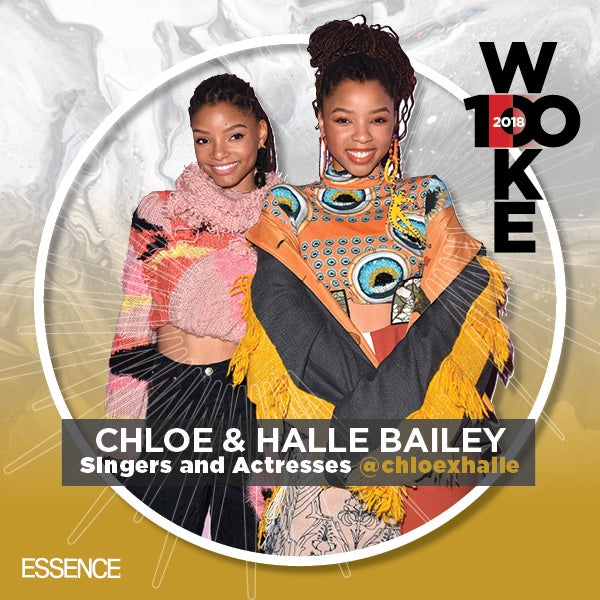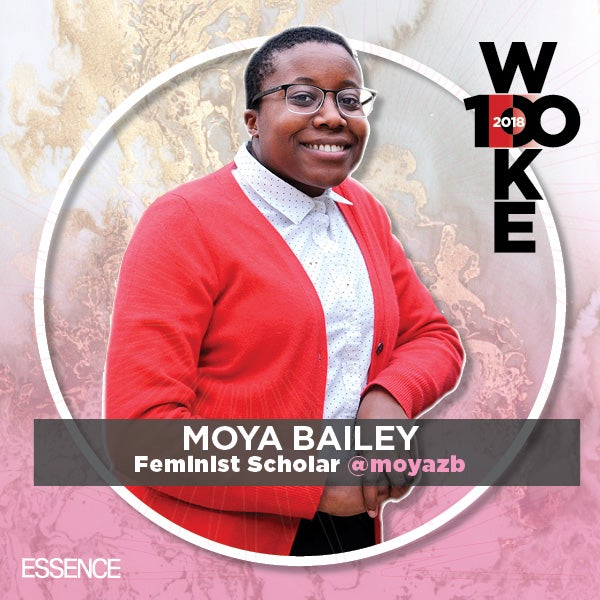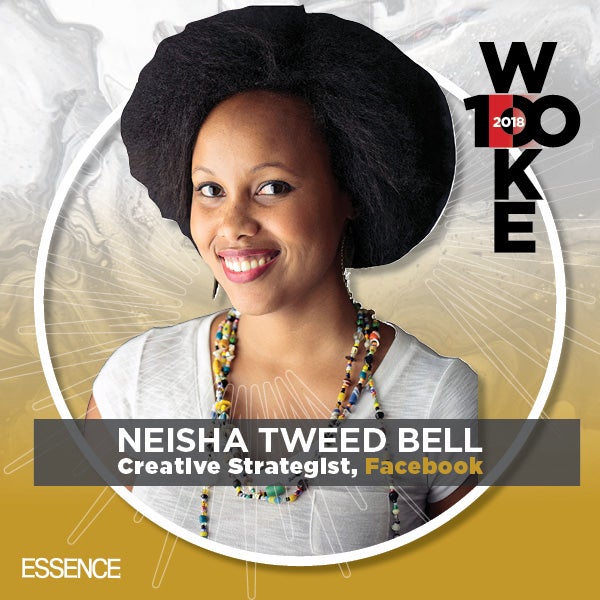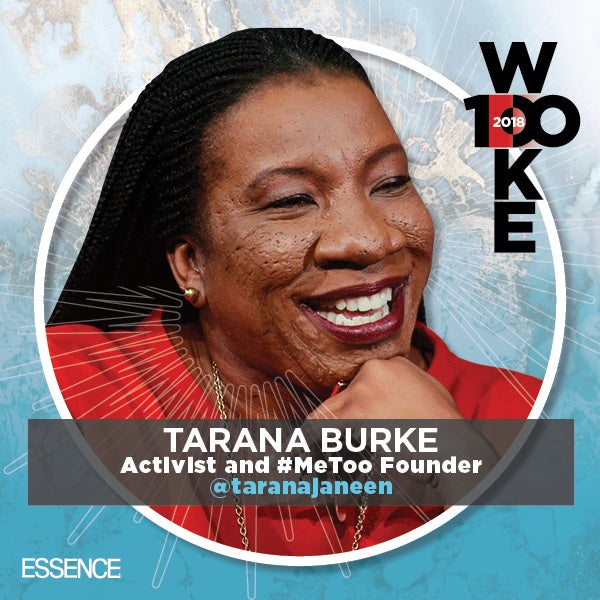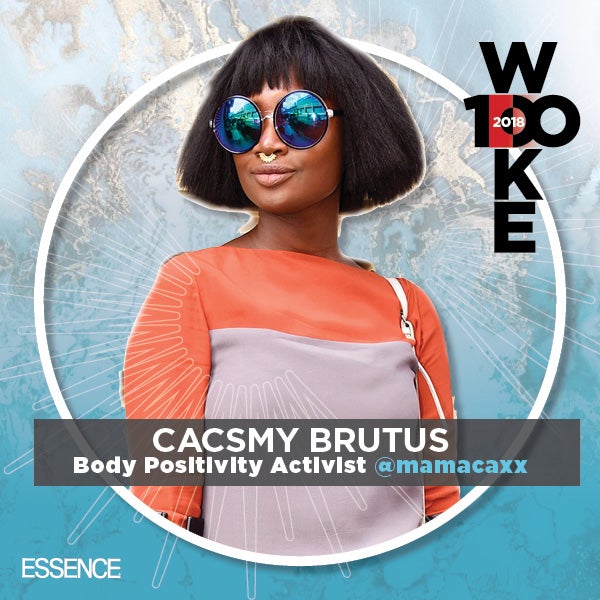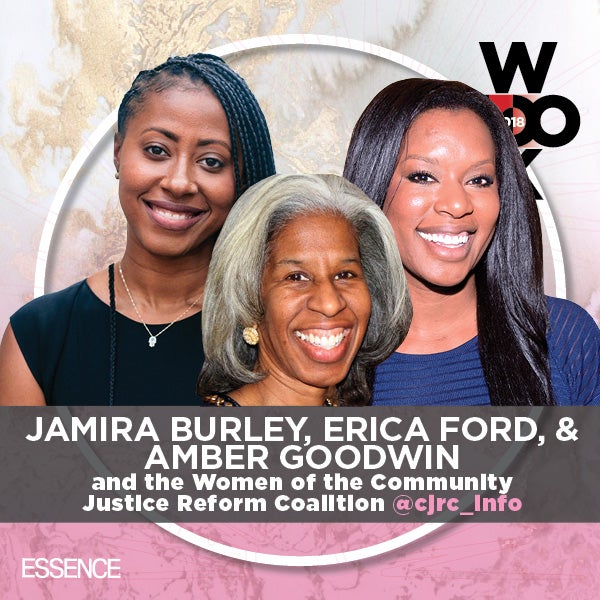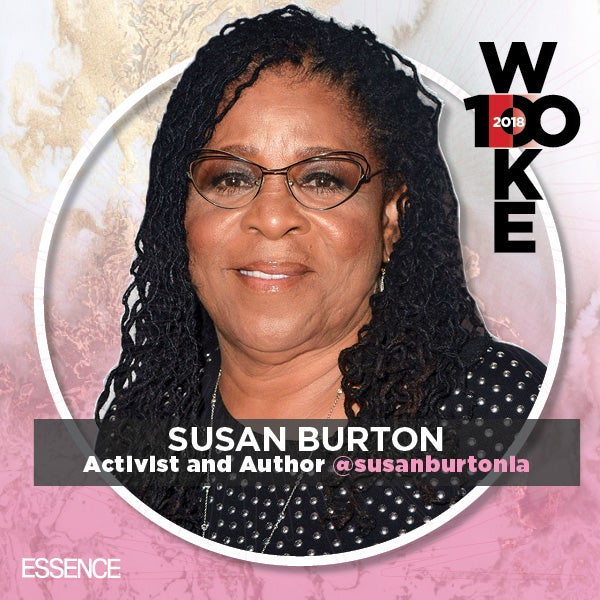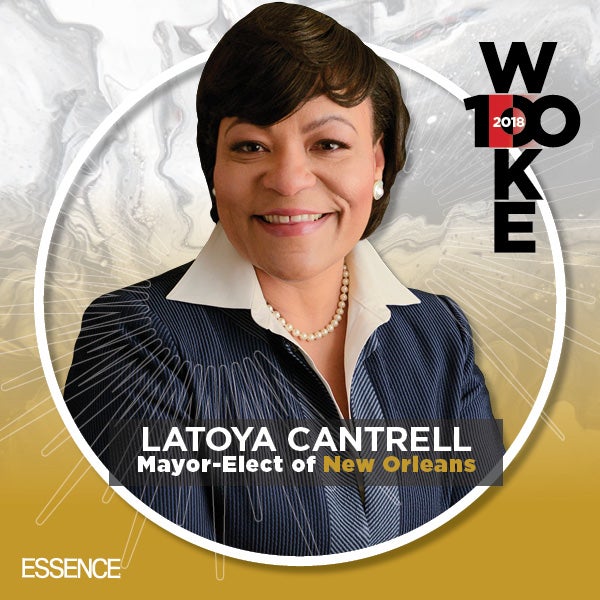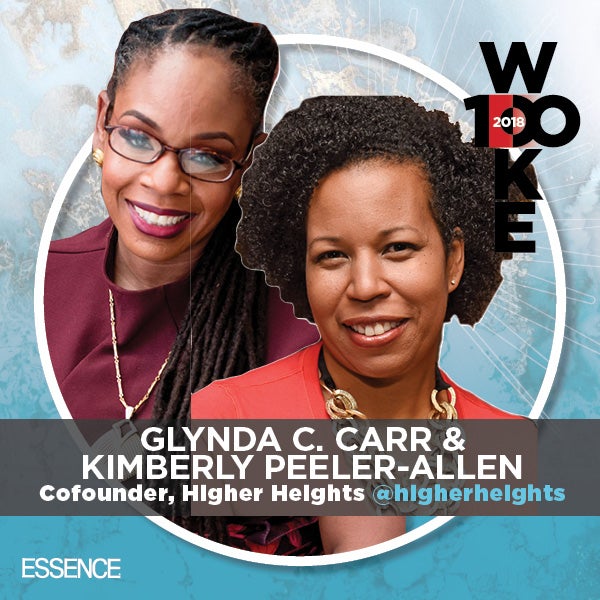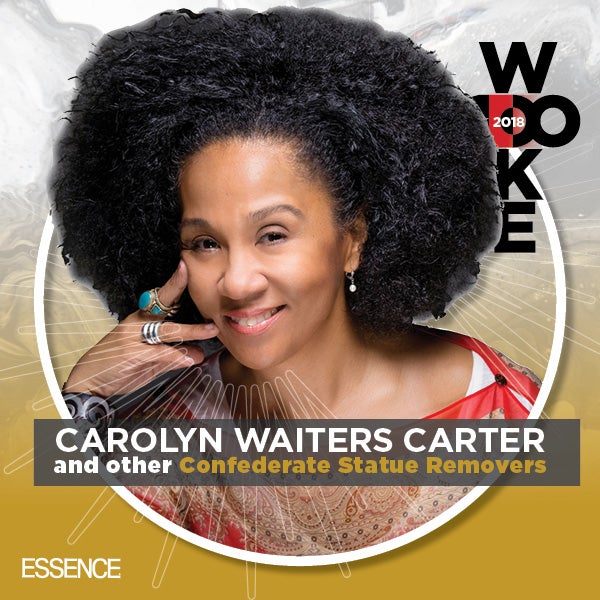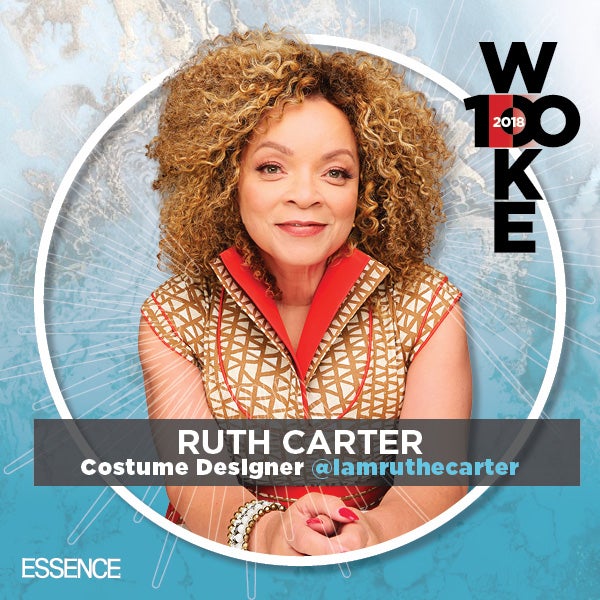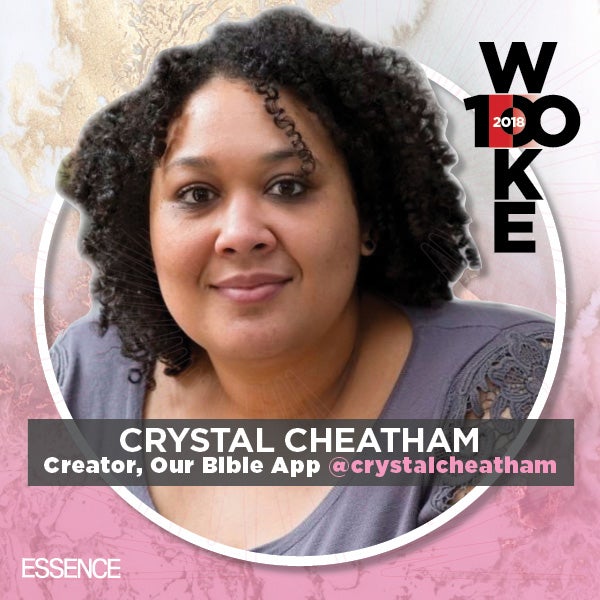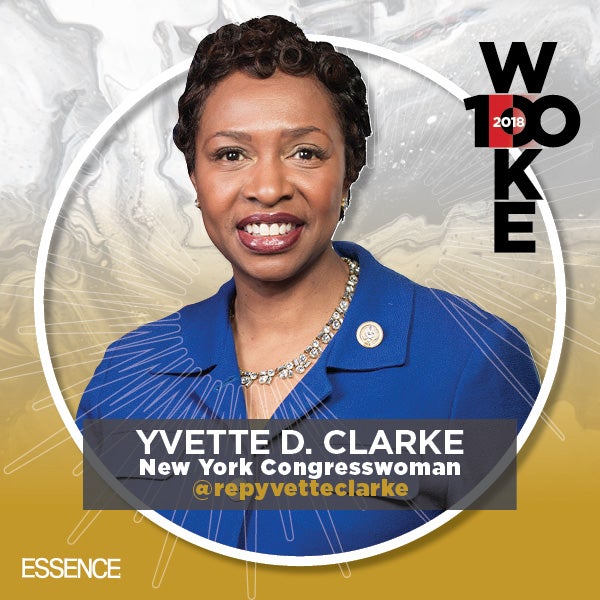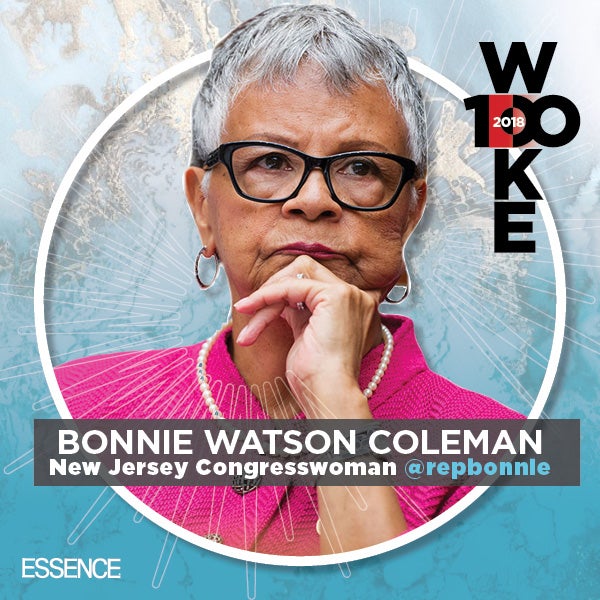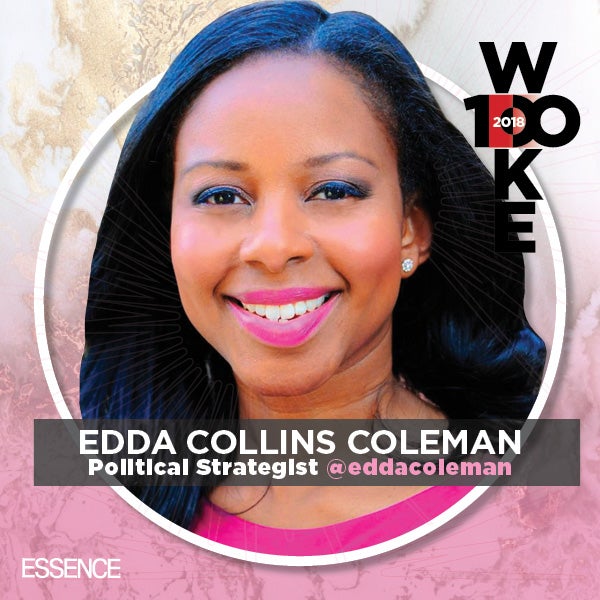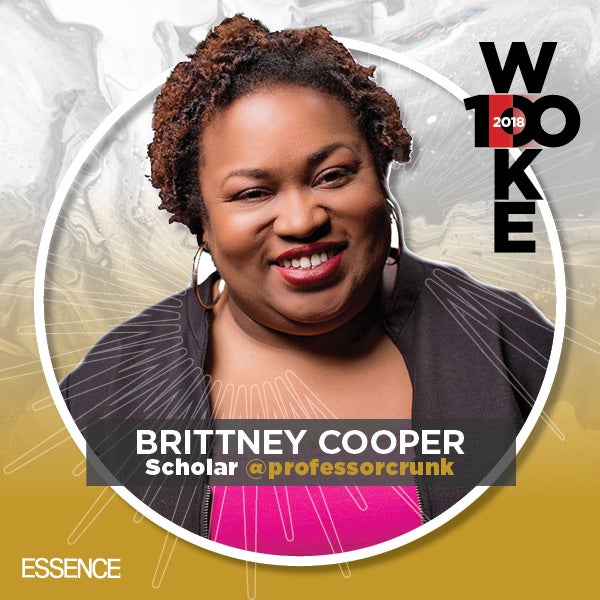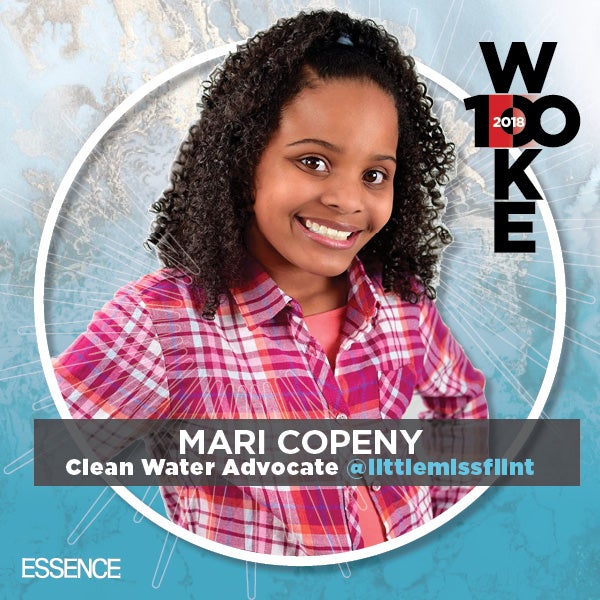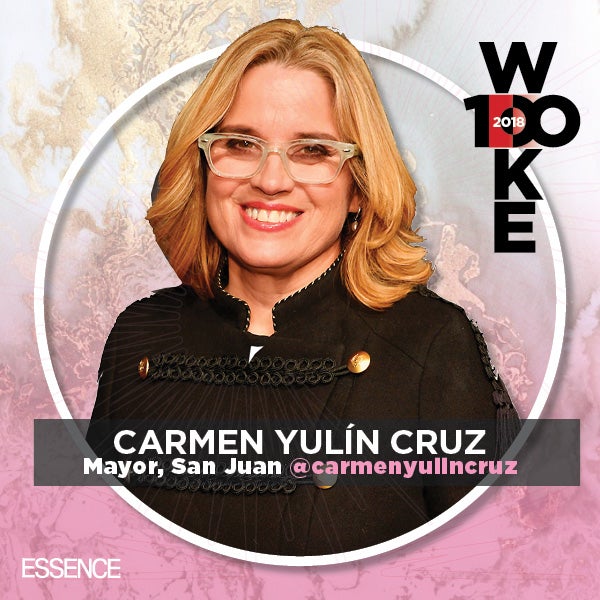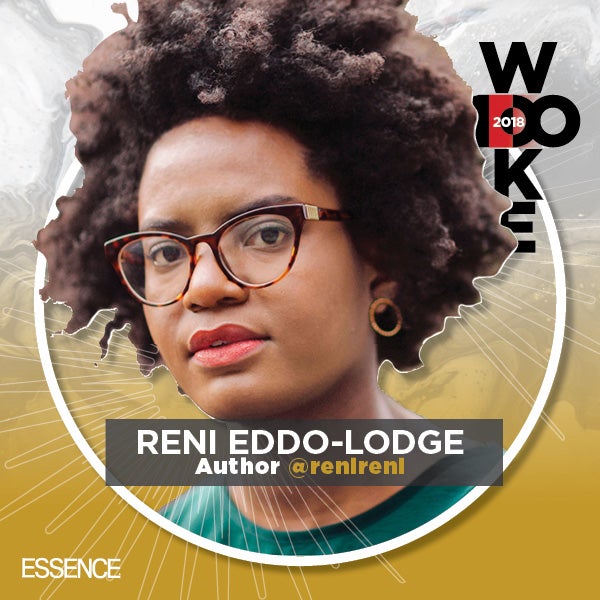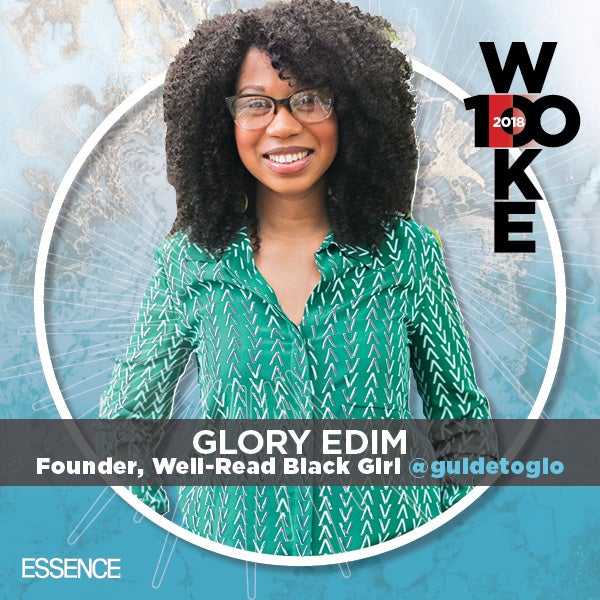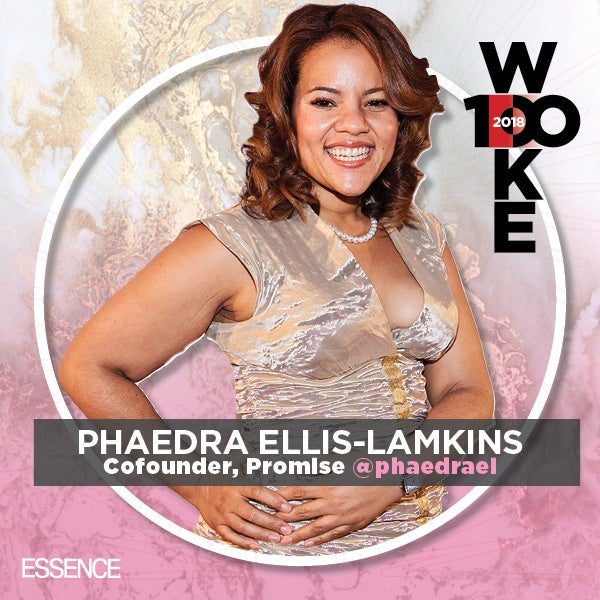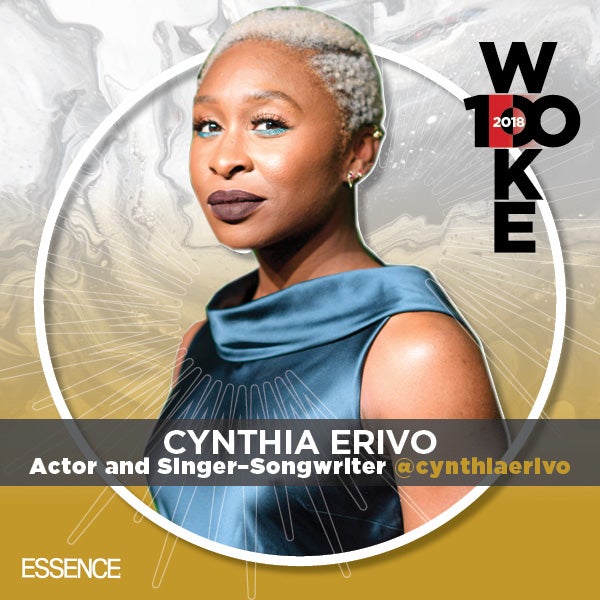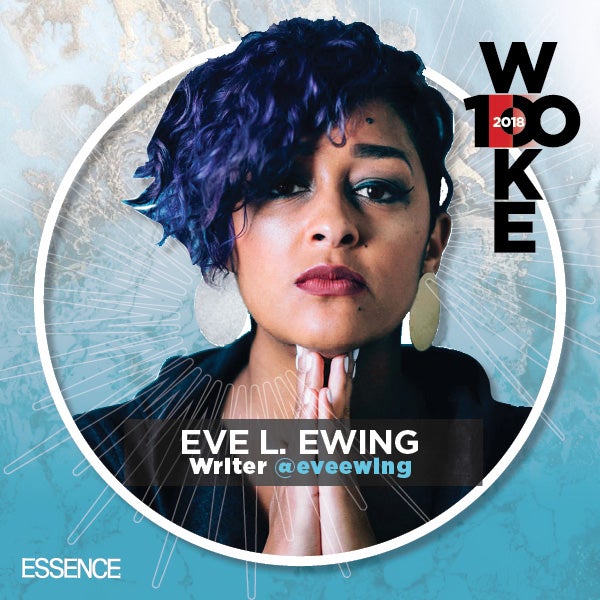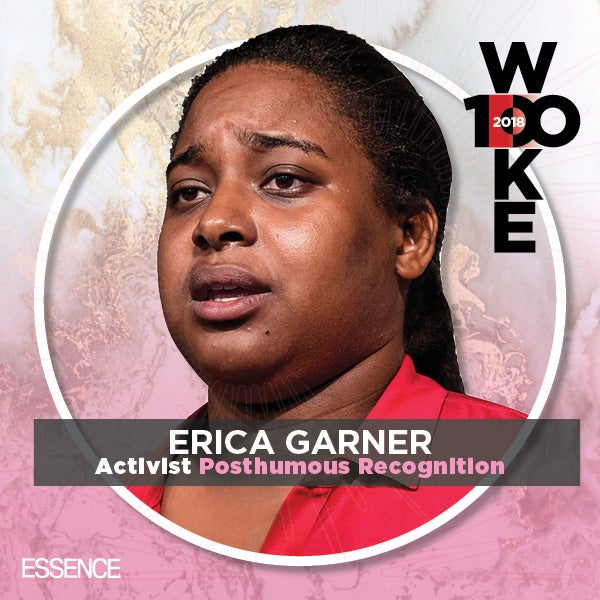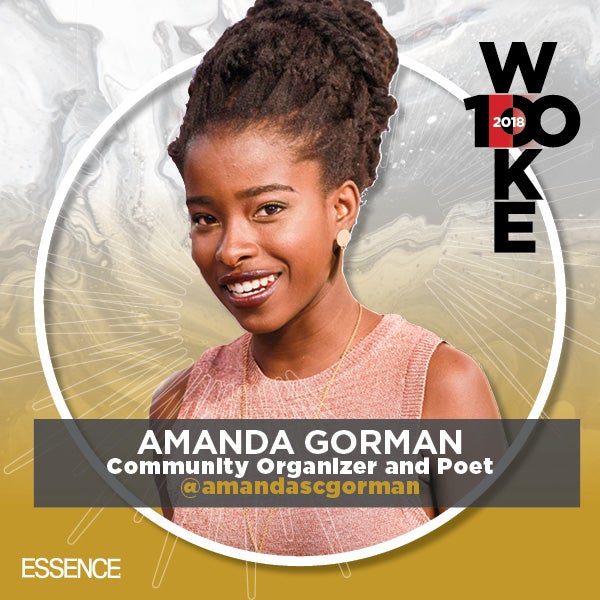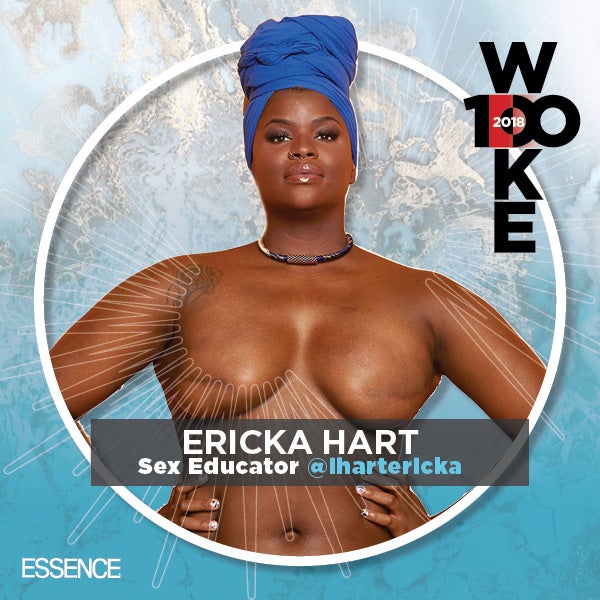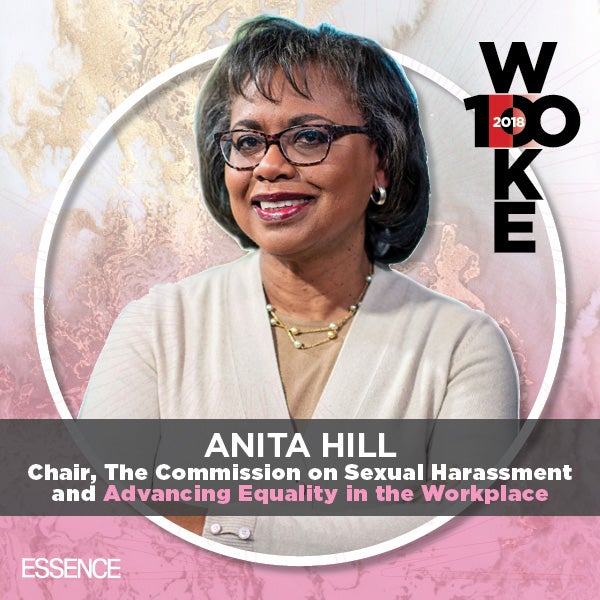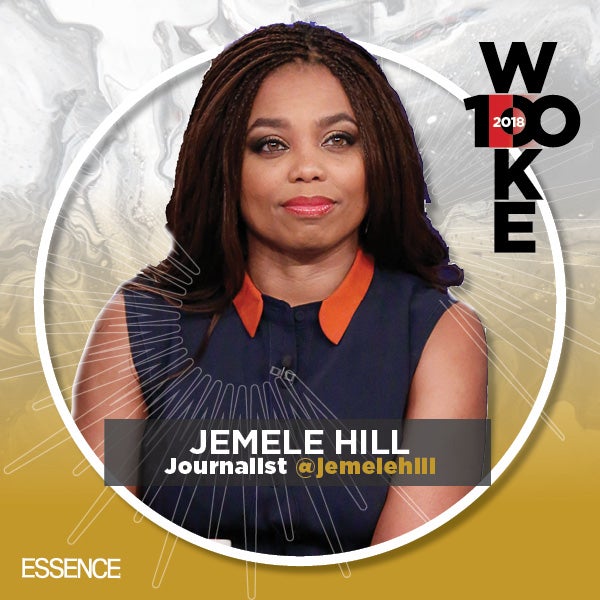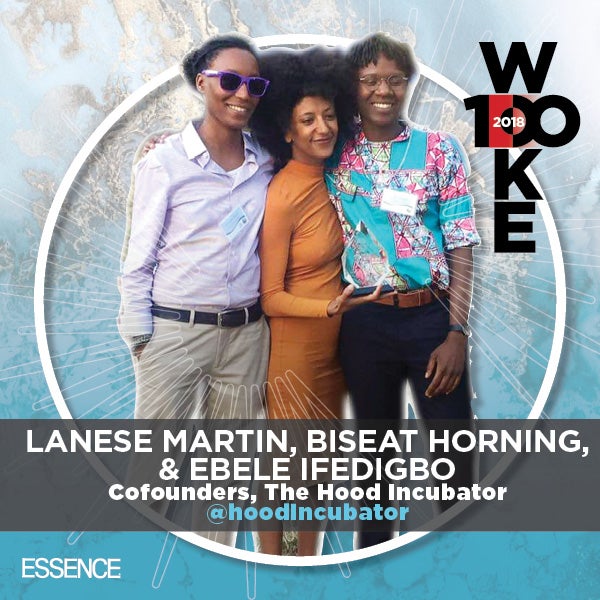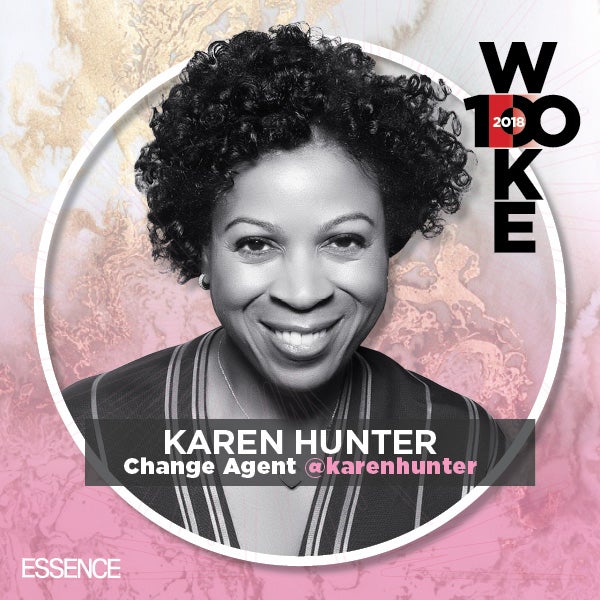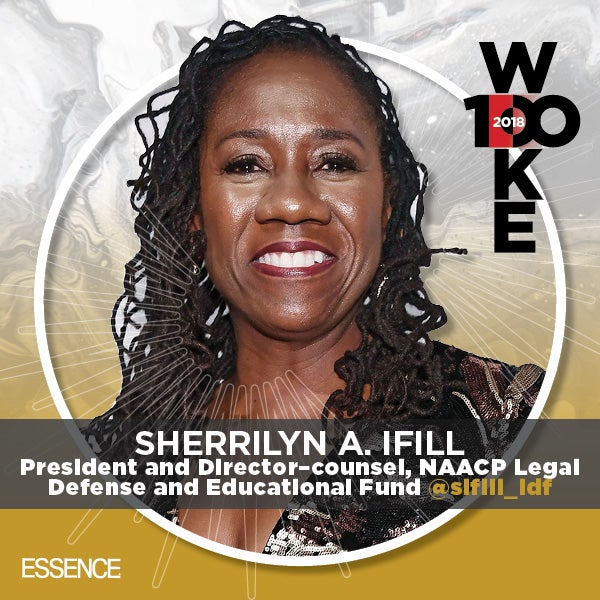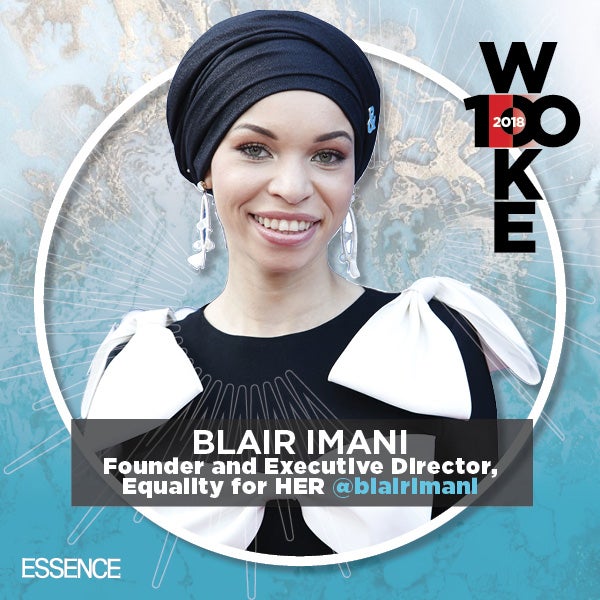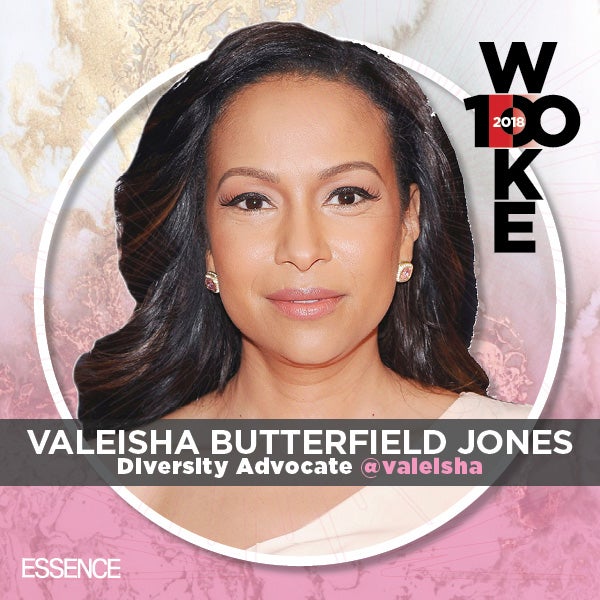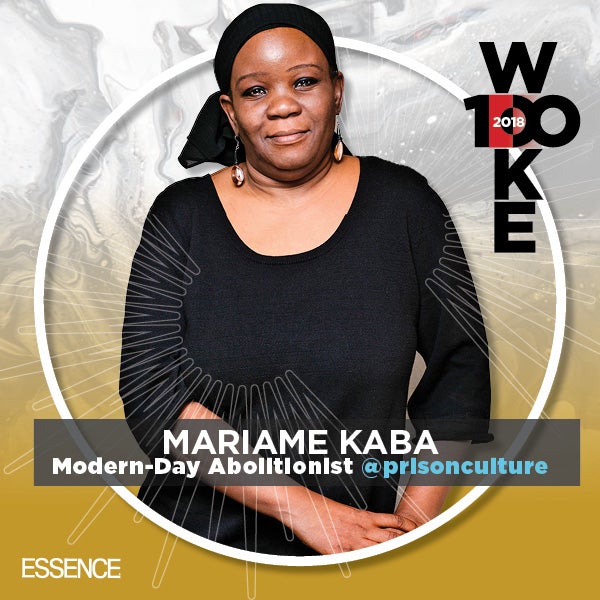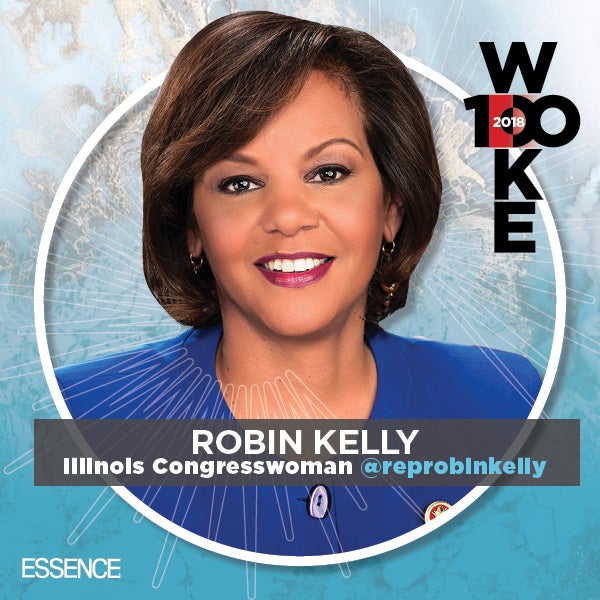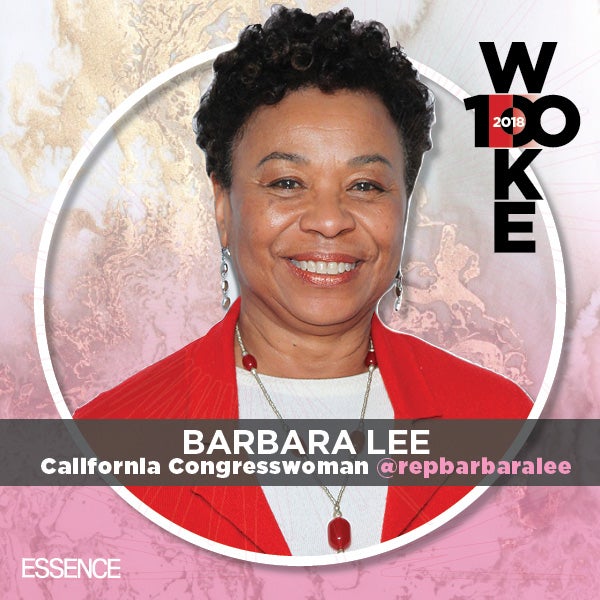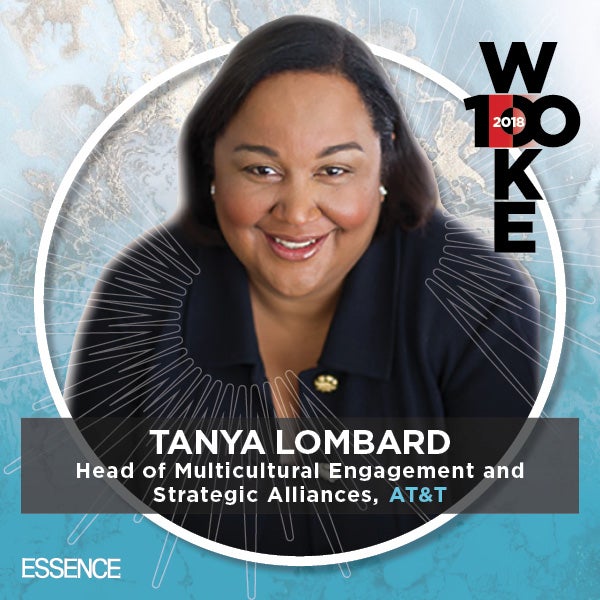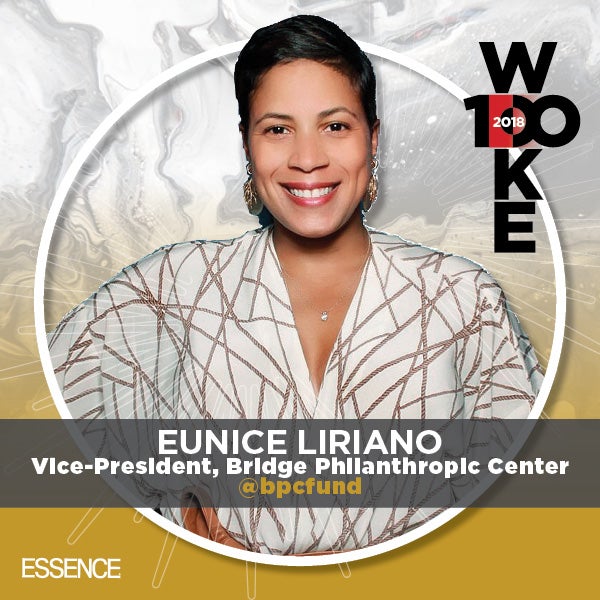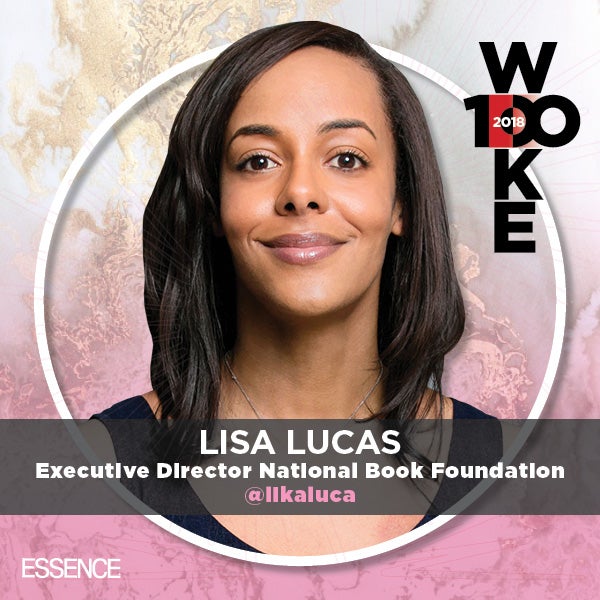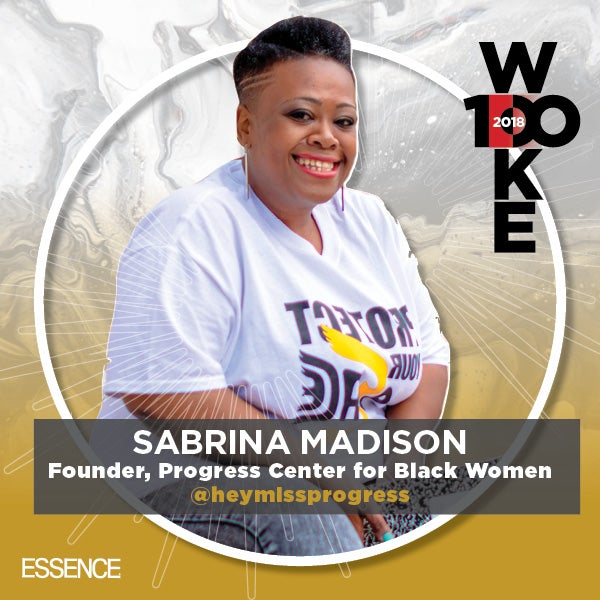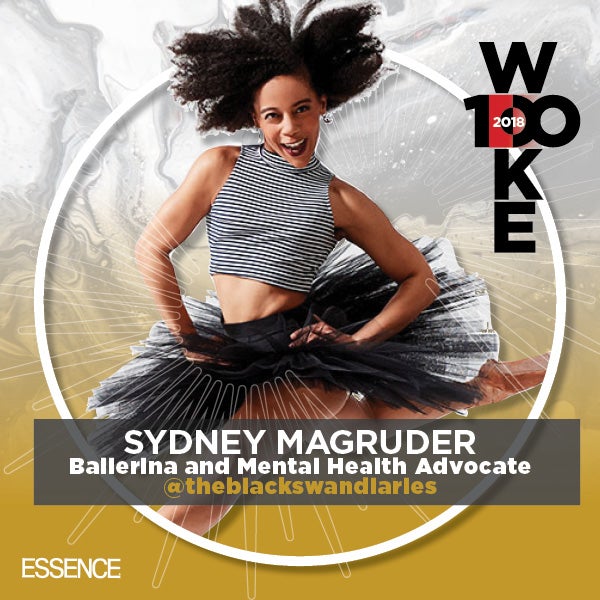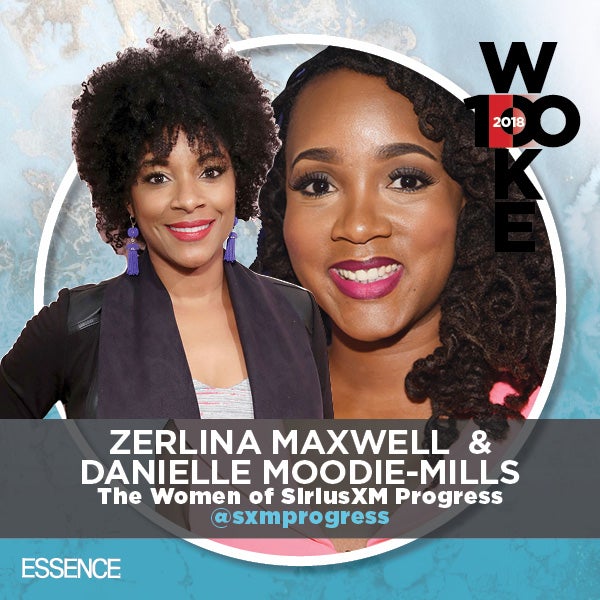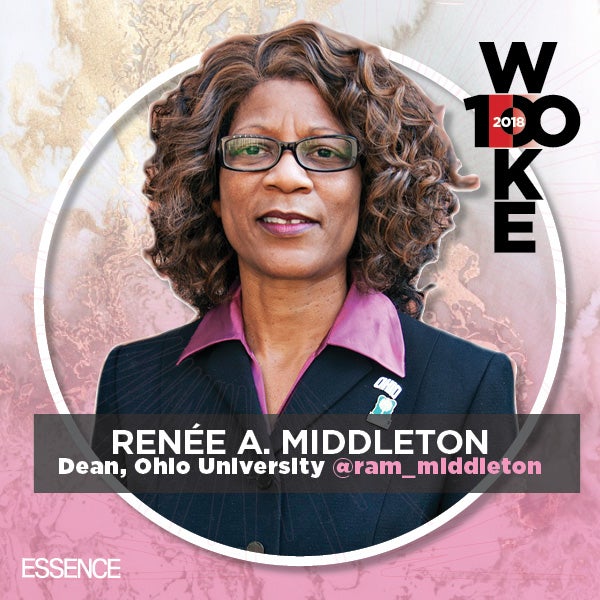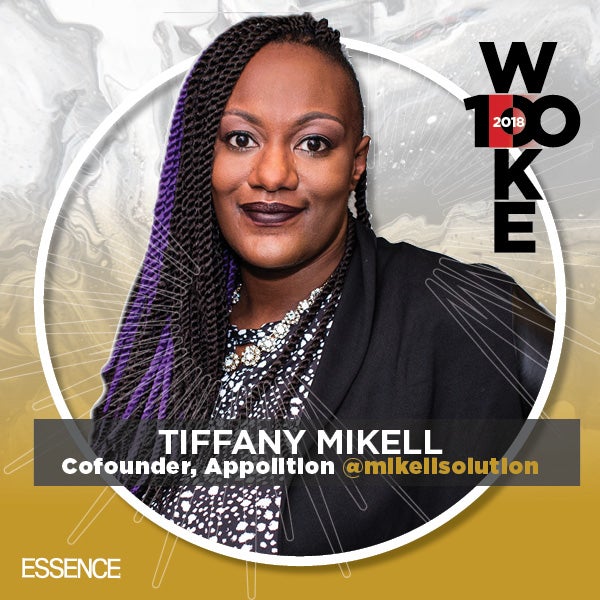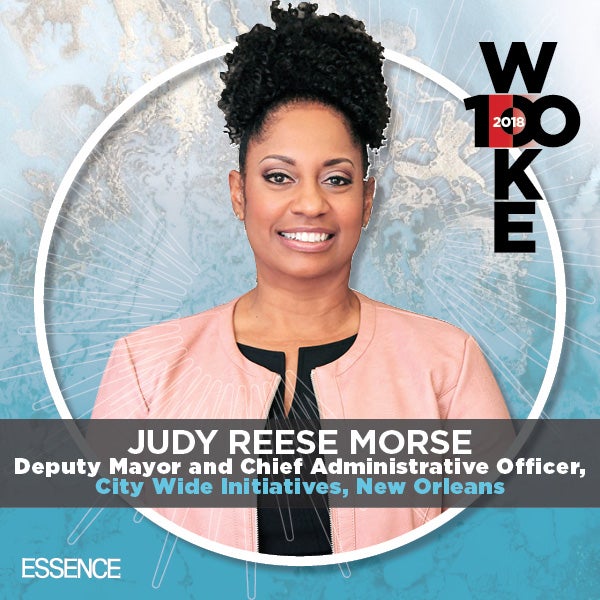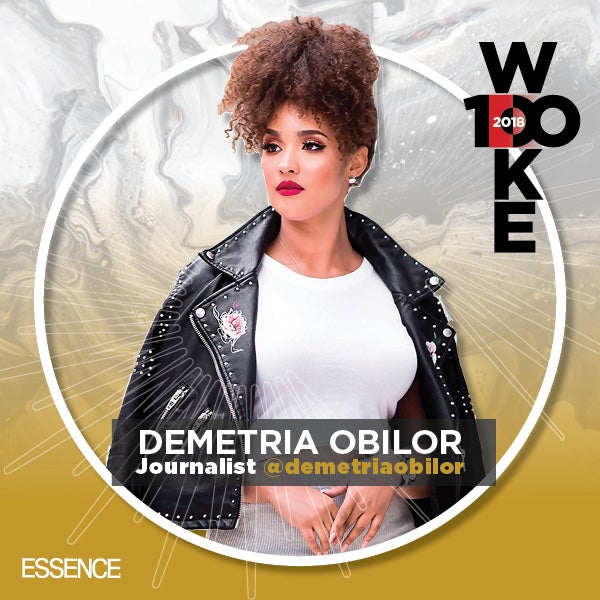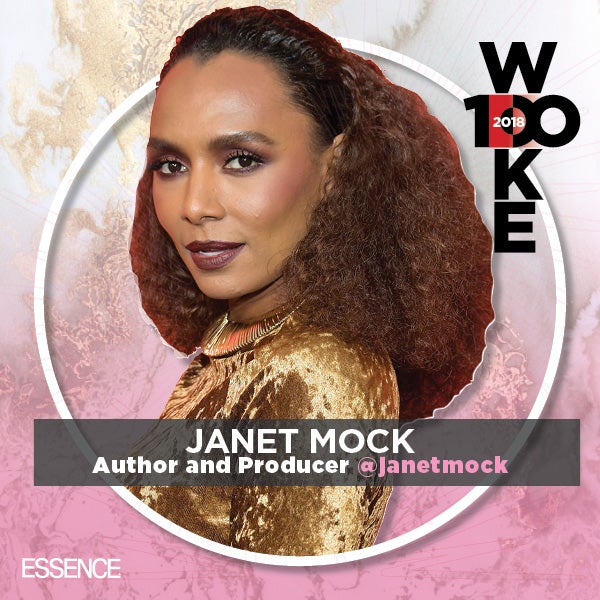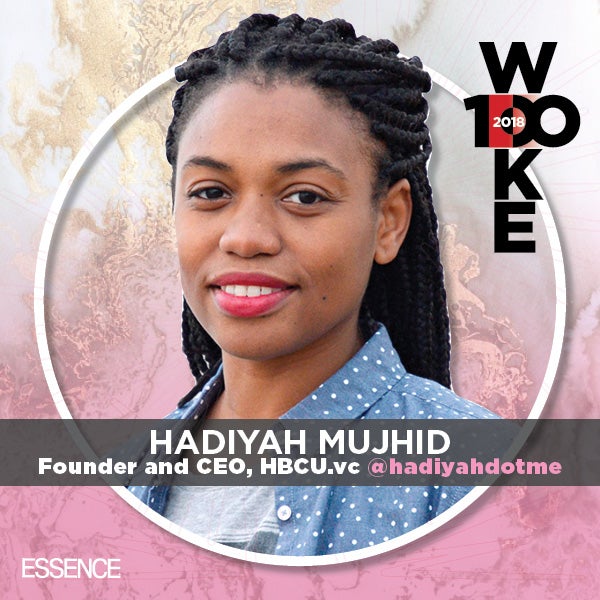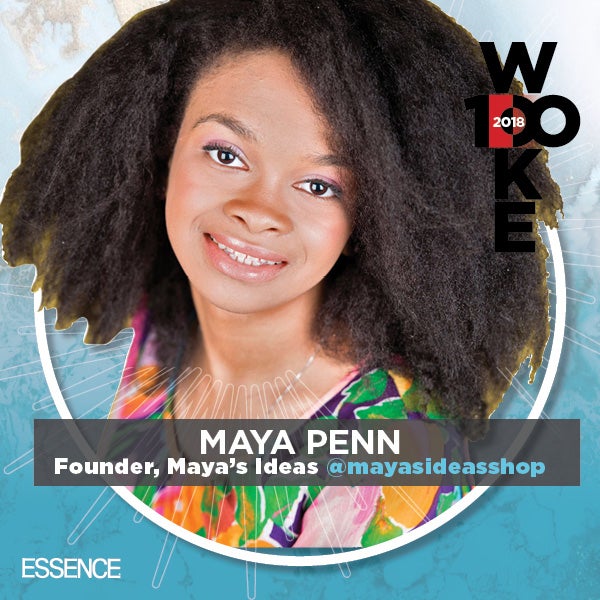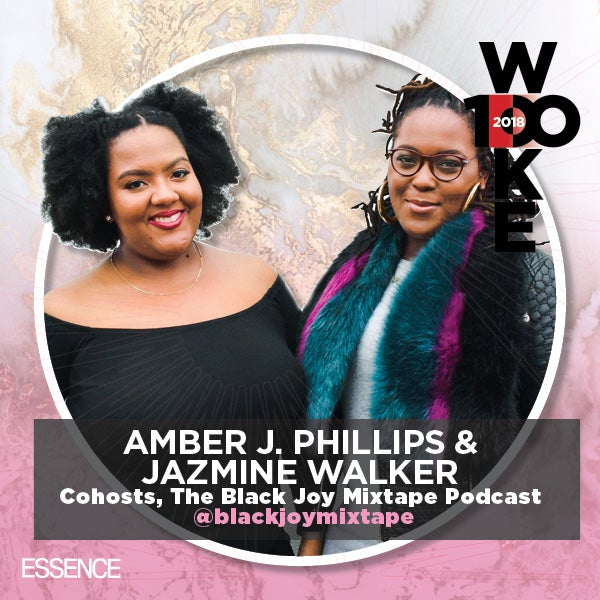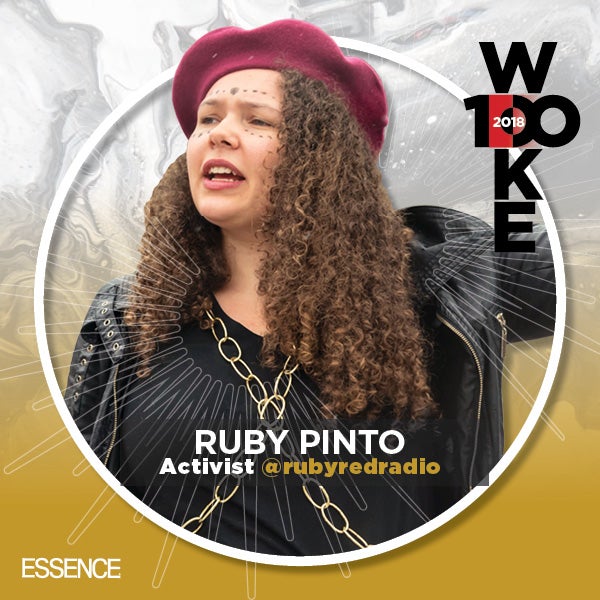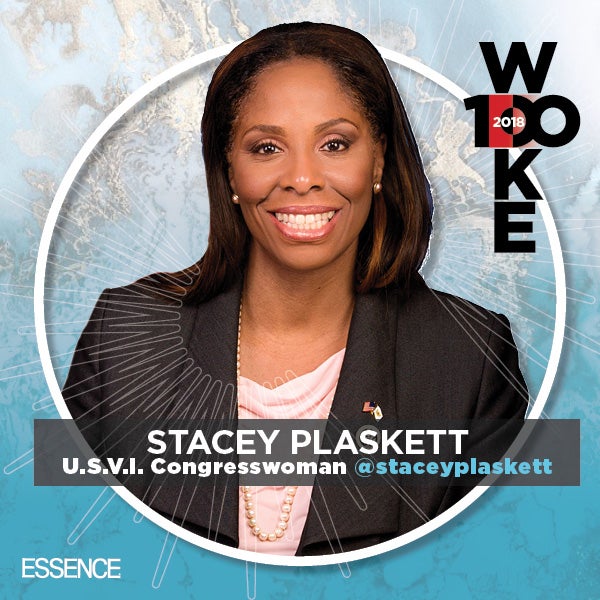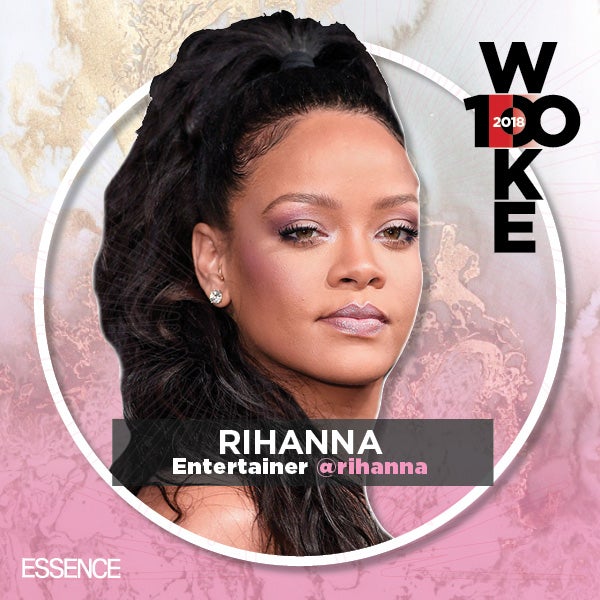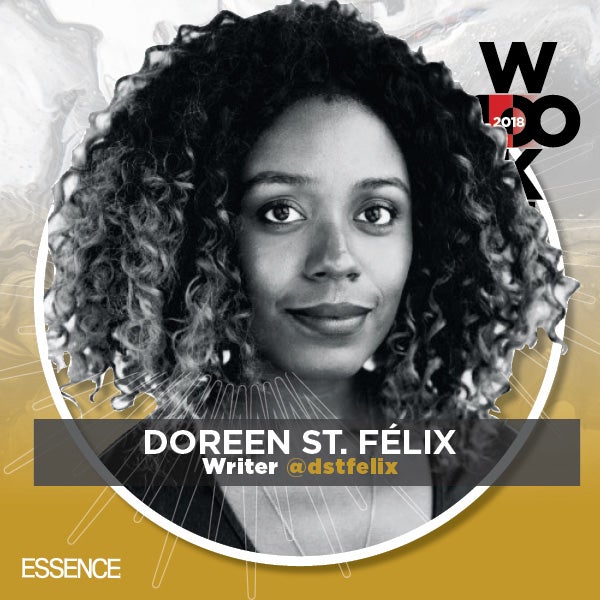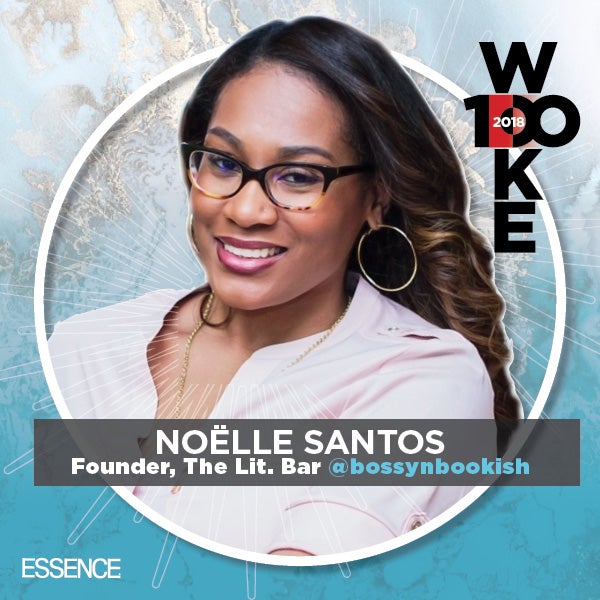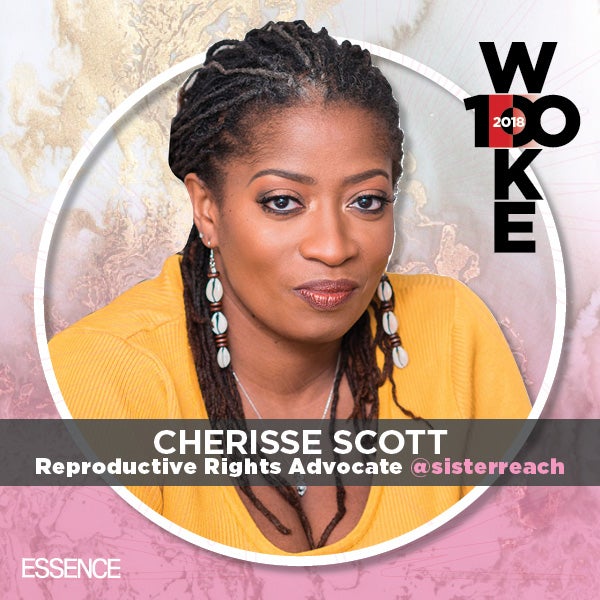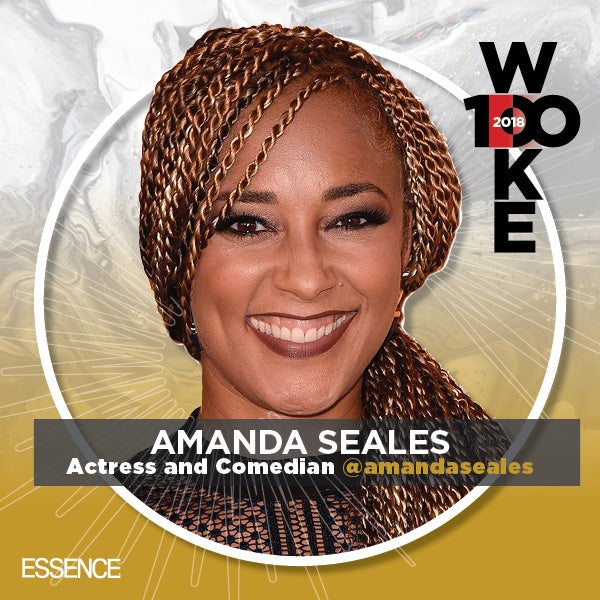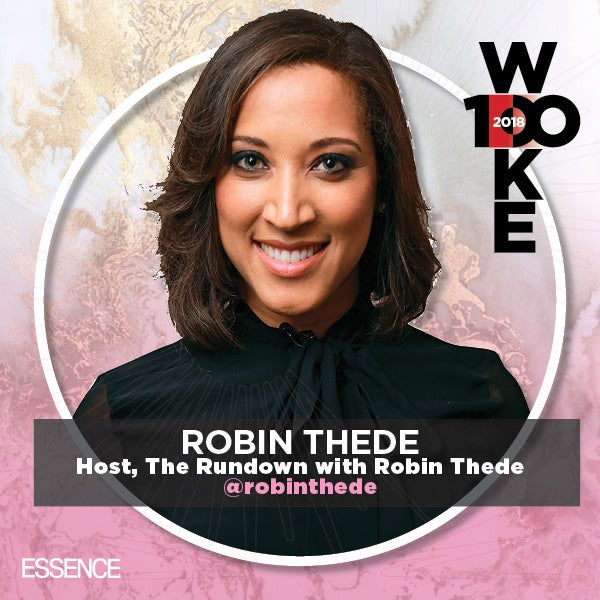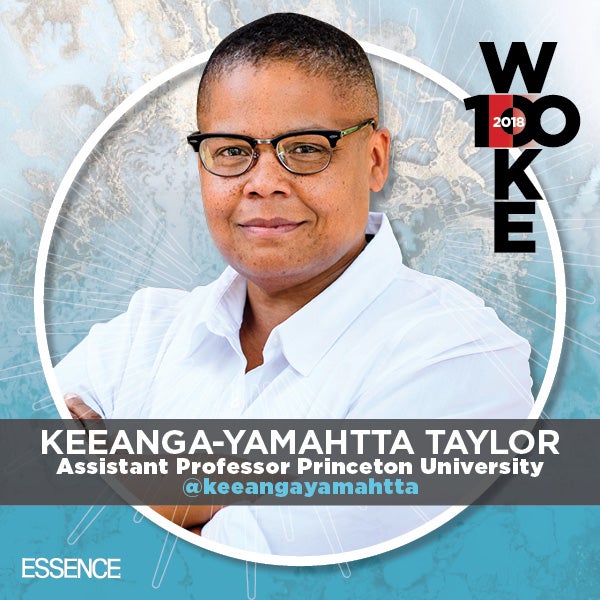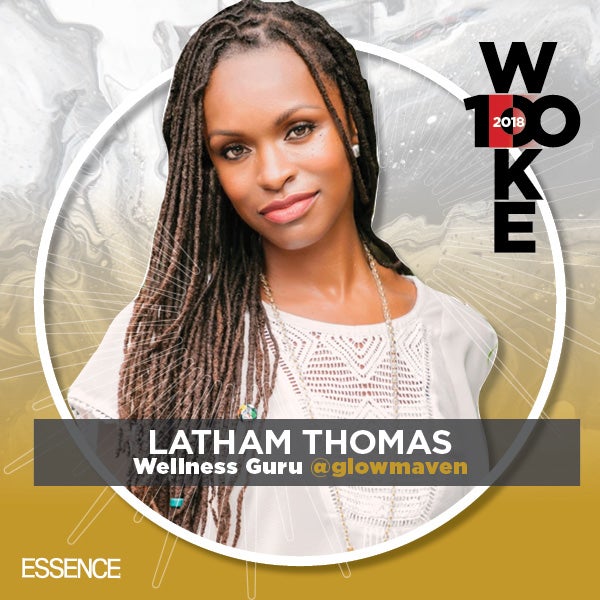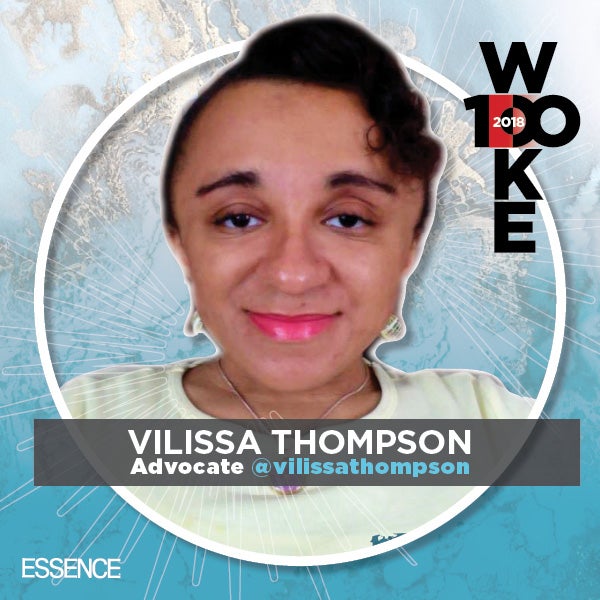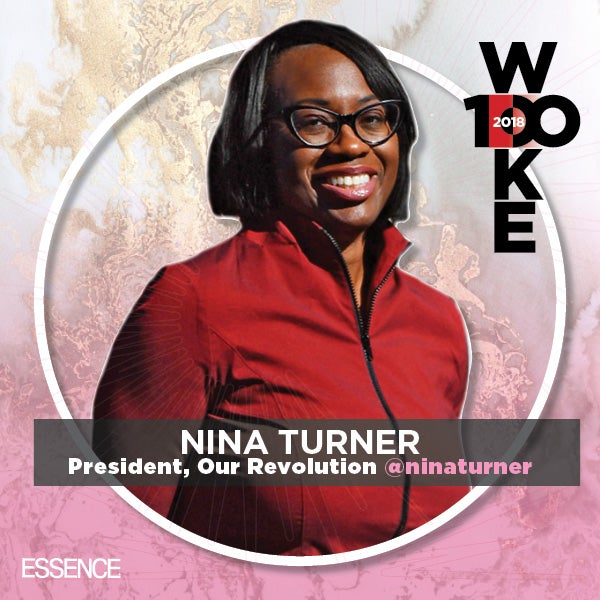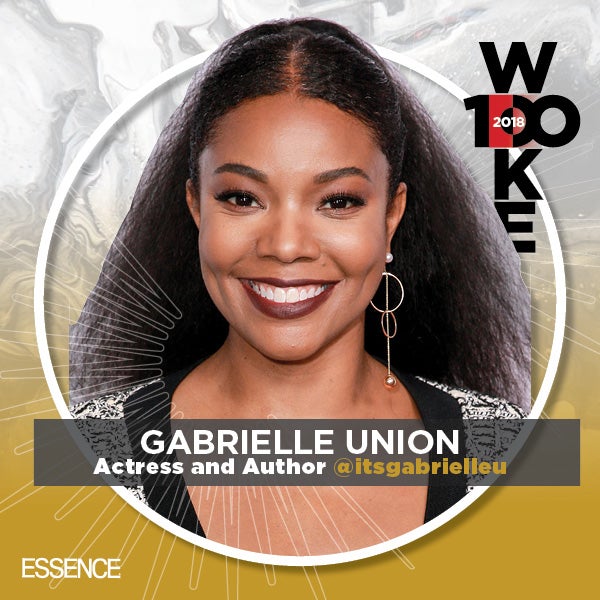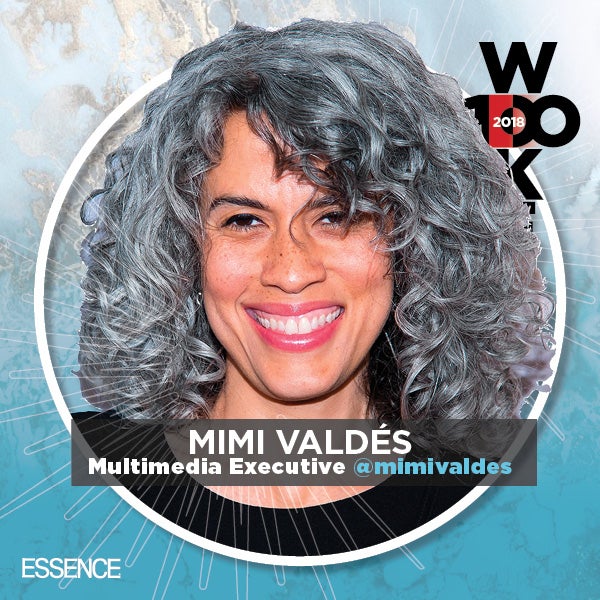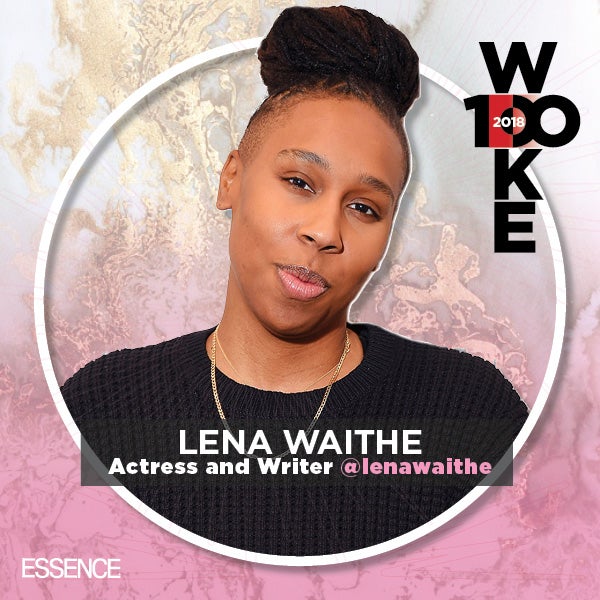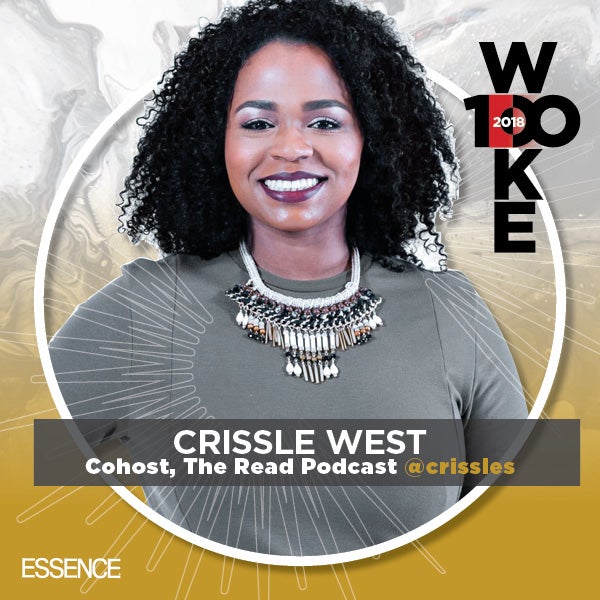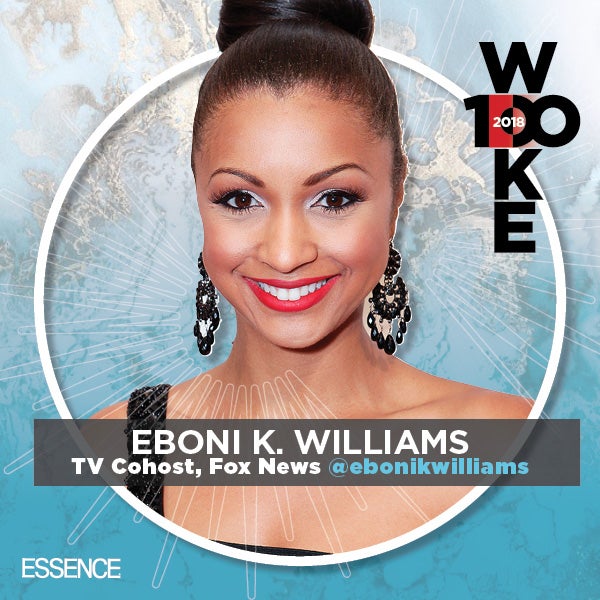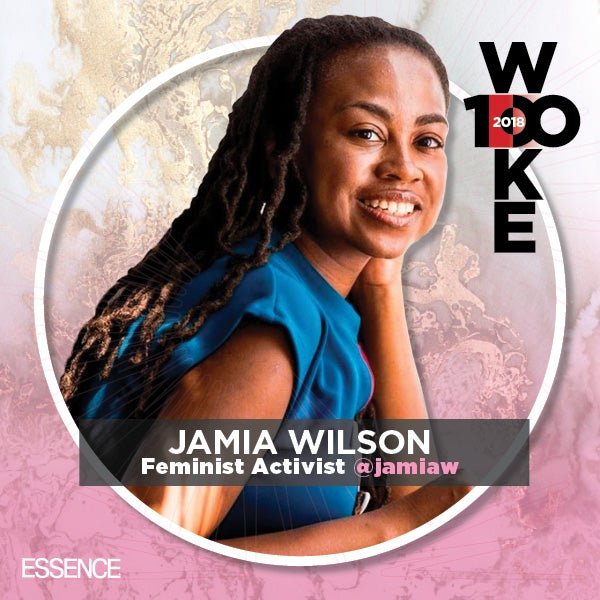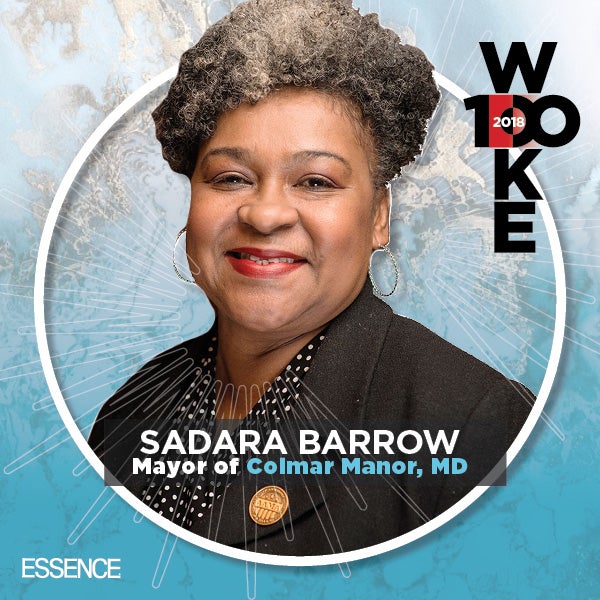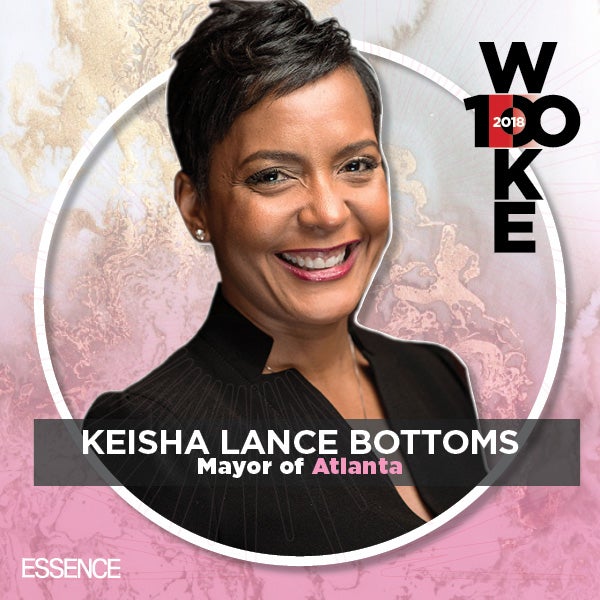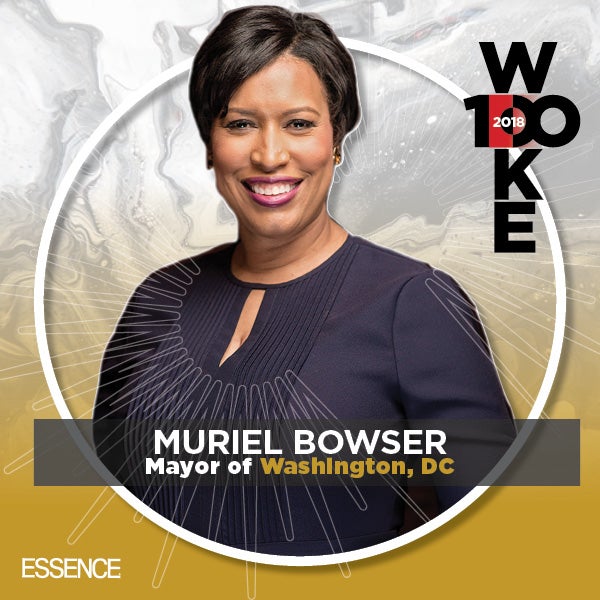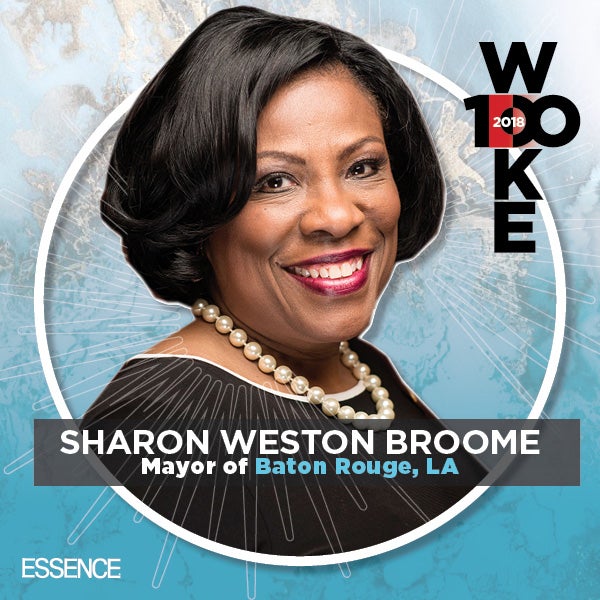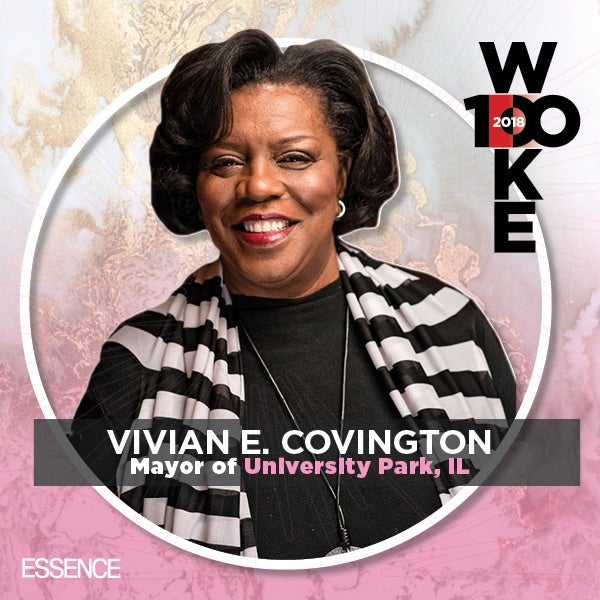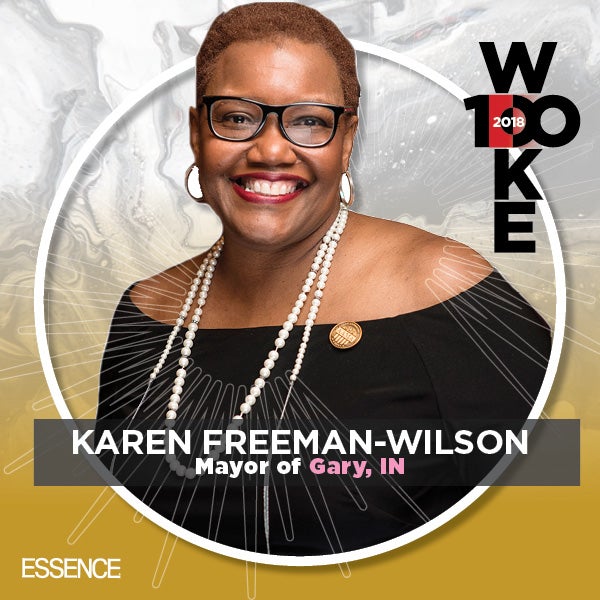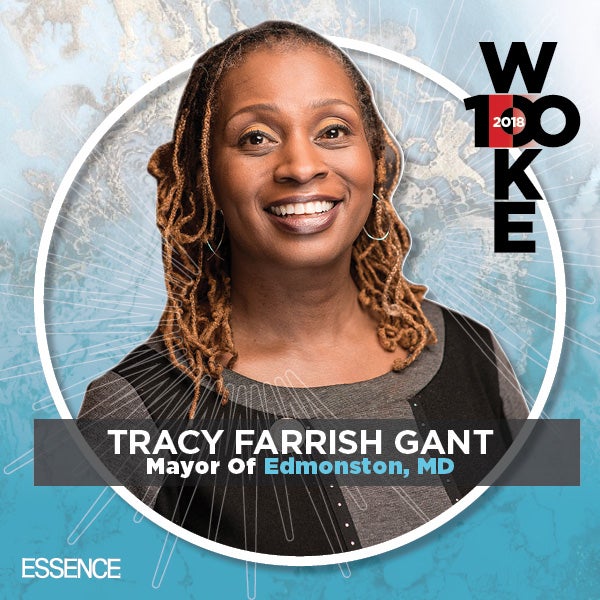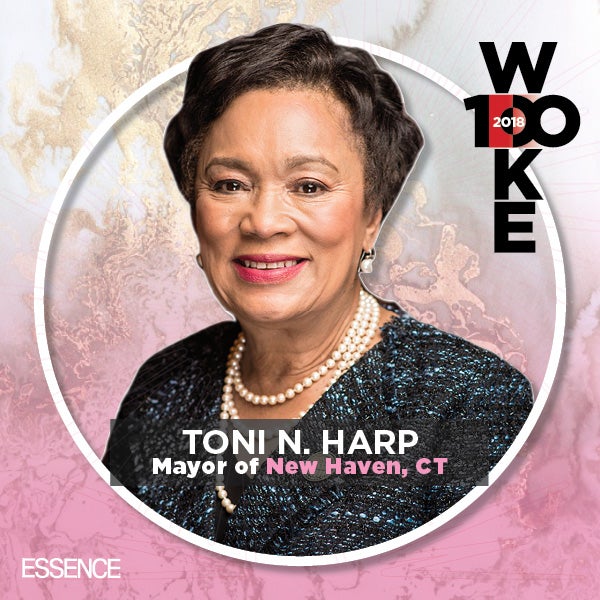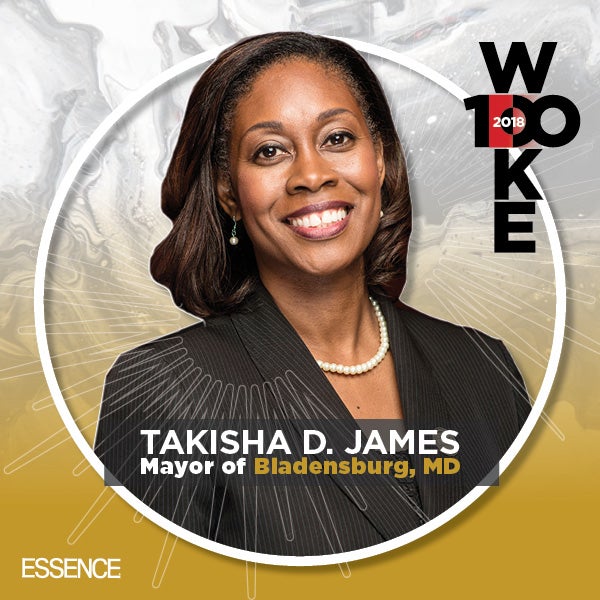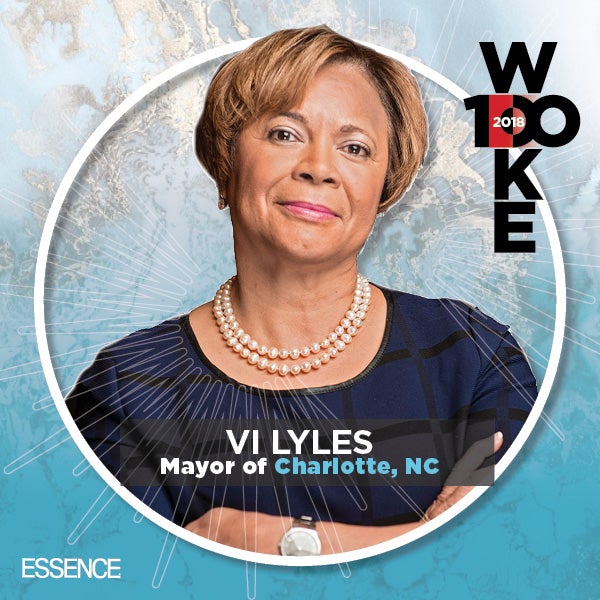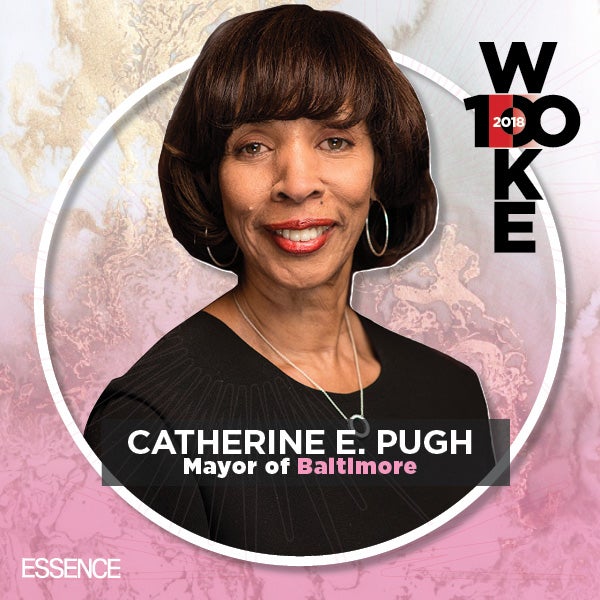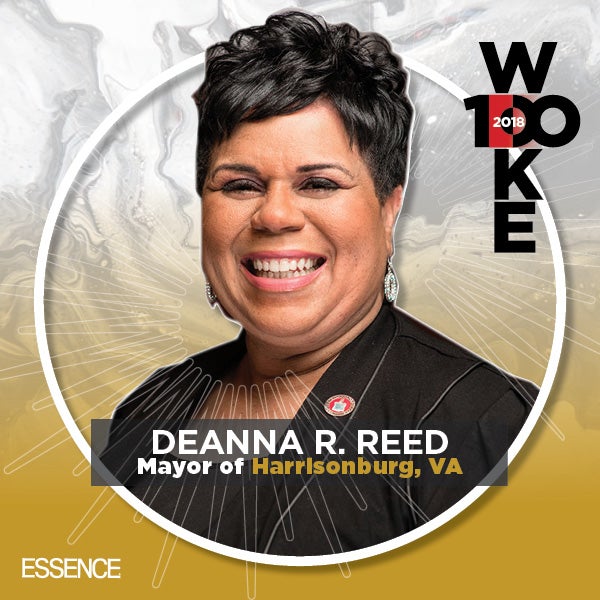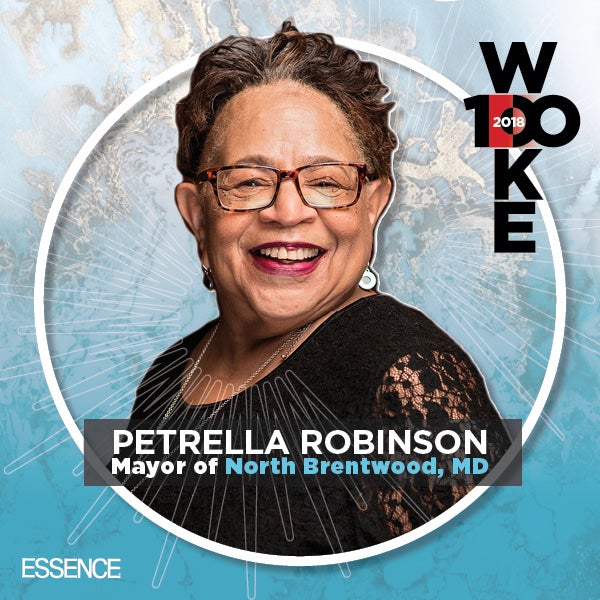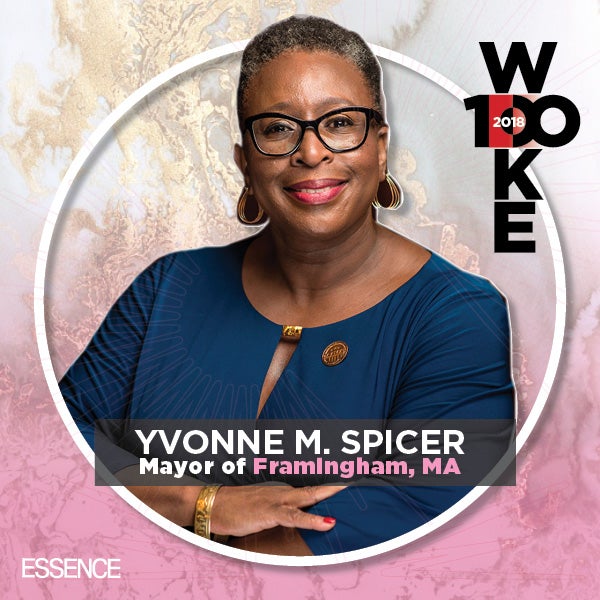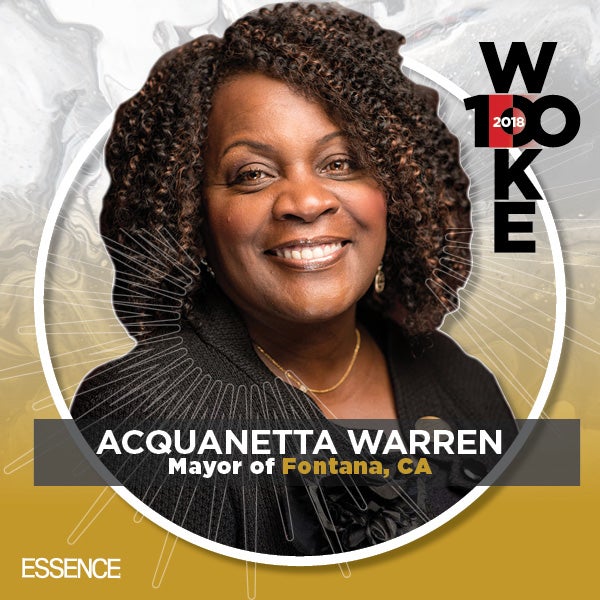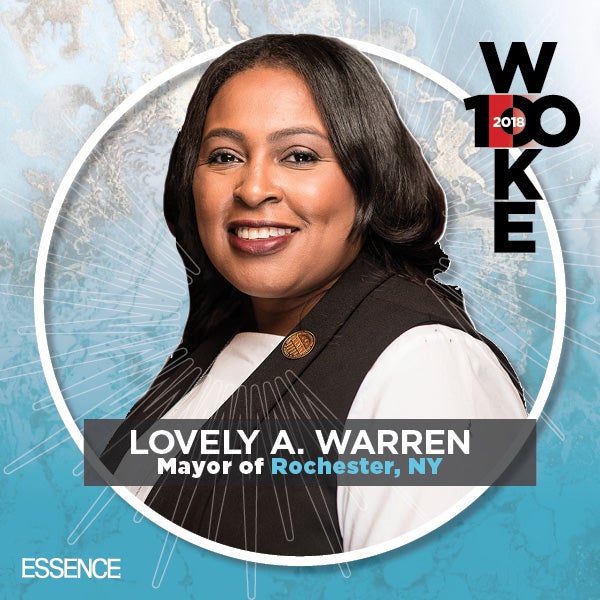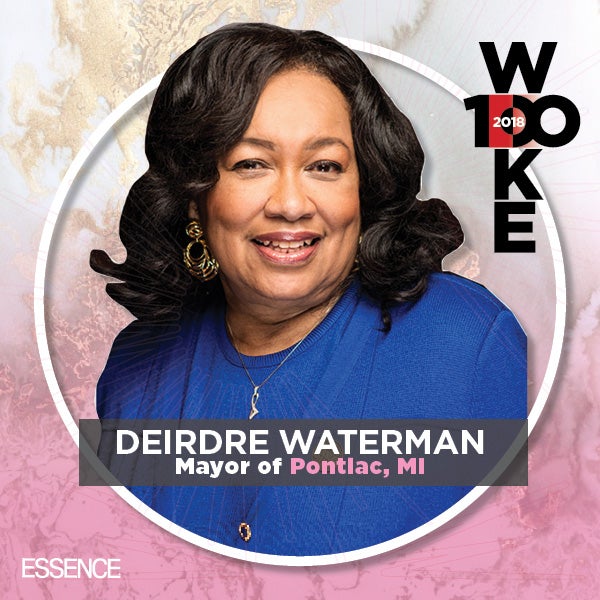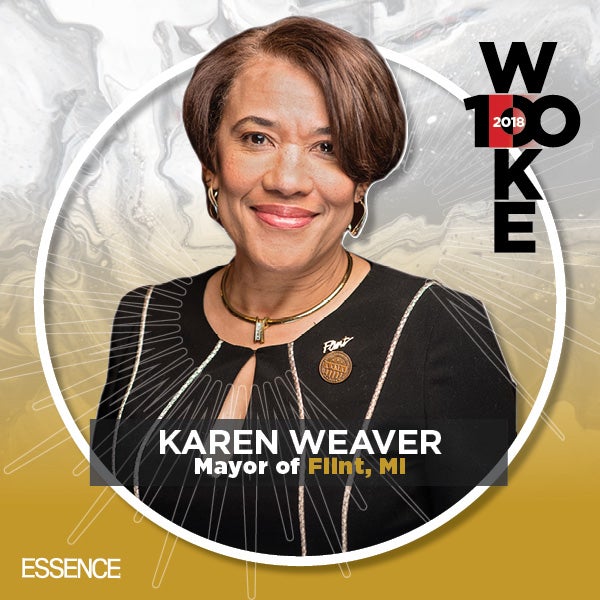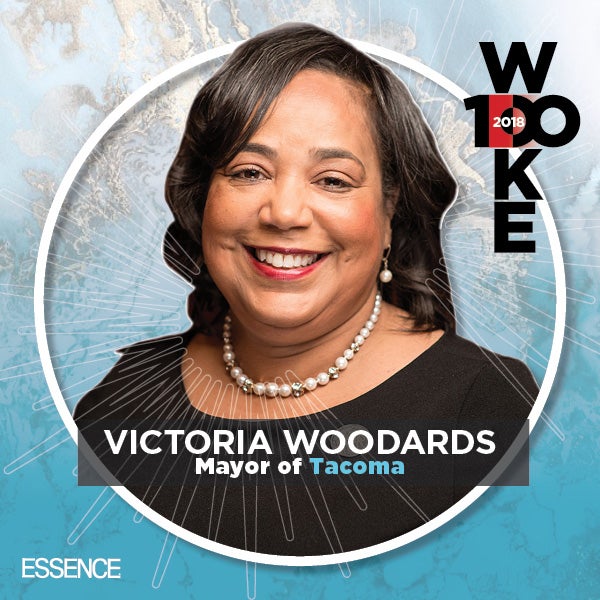For the second year in a row, ESSENCE honors the women who are proven change agents, shape-shifters and power players across the nation and beyond. These women continuously fight the good fight by inspiring us and igniting movements—from the healthcare field to the Hill to Hollywood.
This year’s cover star features the one and only Kerry Washington — who, alongside Nina Shaw, is one of the founding members of the Time’s Up campaign, and a consistent supporter of Black Lives Matter (but more on that later).
The women on this list represent a vast spectrum of excellence: From #MeToo movement founder Tarana Burke to Black Panther costume designer Ruth Carter; from corporate women shattering glass ceilings to the countless women dismantling white supremacy. These women consistently leave their mark on the on their respective communities and industries.
Ahead check out our 2018 list and join the #Woke100 discussion on Twitter.
Pick up the May 2018 issue of ESSENCE on newsstands on April 27!
A noted poet, Alexander was recently appointed president of the Mellon Foundation—the largest fund of
its kind in the country. In addition to supporting the nonprofit’s humanities-driven agenda, Alexander has been tasked with bringing more diversity into the fold.
Following the forceful removal of a young Black girl from her classroom, Anderson established an organization to shine a light on the state of our youth. The #everyblackgirl campaign raises awareness of violence and other societal issues impacting our children in schools, the foster-care system and juvenile detention centers.
With self-care at a premium, the founder of Black Girl in Om brings healing to the masses. The uniquely targeted podcast she cohosts is dedicated to all things wellness and acts as an ongoing love letter to women of color.
The energetic siblings have created music for years, but with the release of their much-anticipated debut album, The Kids Are Alright, Beyoncé’s protégés are pushing for major change through their chosen art.
After realizing that the erasure of Black women was a societal problem, the Northeastern University professor came up with the term misogynoir in 2010. Like Bailey, it addresses race and gender bias. Through her life’s work, she also explores culture and sexuality.
Long before #MeToo became a movement, the senior director at Girls for Gender Equity coined the phrase as a sign of support for victims of sexual assault. The civil rights activist continues her advocacy to help young women of color beat
the odds and thrive.
Also known as Mama Caxx, the Haitian-American blogger and model promotes self-love to her 137,000 Instagram followers. The fearless amputee also works to dismantle the stereotypical image of what people with disabilities look like.
@CJRC_Info
Under the umbrella of a national advocacy coalition, these women, who are each dynamic in their own right, have come together to confront inequities in the criminal justice system. Advisory board members Burley and Goodwin, along with speakers bureau member Ford, work passionately on training programs and events to reduce gun violence in the Black community.
After her 5-year-old son died, Burton went into a downward spiral, eventually being imprisoned on drug charges. She now shares her story in Becoming Ms. Burton: From Prison to Recovery to Leading the Fight for Incarcerated Women and visits prisons nationwide to inspire women to rise higher.
NOLA voters helped make history when they ushered in Cantrell as their first female mayor. Deeply connected to her community, Cantrell plans to continue revamping the city post-Katrina and has vowed to address inequity among its African-American residents.
The Trump effect has seen an unprecedented number of women running for political office. To help, this dynamic duo advises female candidates around the country on how to become leaders.
Last year brought a wave of renewed interest in Confederate statues, which have been left over from a time in history that celebrated the denigration of Black lives. Leading the way in denouncing these figures were the folks in New Orleans. An overwhelming number of residents of this Black-majority city used their voices to express their outrage. Through Carter’s actions and those of other protesters in numerous states, some of these racist monuments have been removed.
In a cinematic universe known for dressing crime-fighting women in impractical costumes to satisfy the male gaze, Carter’s Black Panther designs provided a fresh perspective. Through the two-time Oscar nominee’s adorned ensembles, rooted in traditional African workmanship, viewers were given a cultural history lesson.
As a lesbian activist, Cheatham understands the need for other LGBTQ Christians to have a safe space. That’s why she created an app that features daily devotionals and promotes community to uplift and reaffirm those who have felt traditionally marginalized by religion.
The U.S. representative is amplifying the chorus supporting Black women’s physical and mental well-being. In October Clarke introduced a resolution to add Black Women’s Health Week to the National Health Observances roster.
At a 2017 Congressional Black Caucus Foundation event, Coleman helped to highlight a poster series for the Do You Know My Name campaign featuring some of the Black women and girls who died in police custody or went missing. The longtime lawmaker continues to address a sad reality: When minority groups lack representation in the media, their stories are often written by others or remain untold altogether.
As cofounder of The All In Together campaign, Coleman combats the gender gap in political, civic and professional leadership with tools and resources that help women to engage in the process and drive change on the issues we care about most.
When she’s not schooling students on racism, feminism and gender representation, the Rutgers University professor examines the politics of race through her authentic style of writing and public speaking. In 2018 she released Eloquent Rage: A Black Feminist Discovers Her Superpower.
The 10-year-old, aka Little Miss Flint, has been an activist in the Flint, Michigan, water crisis. In 2017 the youth ambassador for the Women’s March on Washington teamed up with Pack Your Back and raised more than $10,000 to aid Flint children.
In late 2017 the Democratic leader called out Donald Trump for his administration’s inaction after devastating hurricanes wreaked havoc on Puerto Rico. She continues to ring the alarm about the seemingly forgotten U.S. territory.
The U.K.-born writer released Why I’m No Longer Talking to White People About Race in 2017. It is a celebrated collection of essays that in March won the Jhalak Prize for Book of the Year by a Writer of Colour. Eddo-Lodge’s candid take on gender, race and inclusion has garnered her a global following.
With Edim at the helm, the Instagram community of more than 69,000 lovers of Black literature hosted its first festival to celebrate Black female authors and has carved out a place for fans to share their passion for books.
In the age of mass incarceration, Ellis-Lamkins has engineered a way to help reduce the prison population. Through Promise, a de-incarceration start-up and app, local authorities can forgo detaining low-risk individuals pretrial and instead monitor them with the company’s help.
The Nigerian-British performer is perhaps best known for playing Celie in The Color Purple on Broadway, but the rising star also has a spirit of activism. She used her role in The Rape of Recy Taylor documentary to bring awareness to systemic injustice.
The sociologist and poet, also known as Wikipedia Brown, studies racial inequality in schools. In September the author released her first book, Electric Arches, which explores Black girlhood and womanhood through poetry, visual art and narrative prose.
After the murder of her father, Eric Garner, at the hands of the NYPD, the mother became a crusader against police brutality and other racially motivated injustices facing the Black community. She passed away in December 2017.
The Harvard freshman holds the title of the first-ever National Youth Poet Laureate. She uses her gifts to promote literacy and youth activism as the founder of One Pen One Page, an organization helping kids transform the world through words.
The body positivity advocate is a breast cancer survivor and speaker who uses social media to shine a light on those living with the disease and life after a double mastectomy.
The former cohost of SC6 is no stranger to controversy. While always candid on matters of race and the way it plays into professional sports, The Undefeated journalist has been particularly vocal about the current administration’s poor race relations.
Their community-focused nonprofit seeks to ensure that Black and Brown people have access to the legal cannabis industry. Through the trio’s efforts, entrepreneurship is taking on a whole new meaning.
As the host of an eponymous radio show on Sirius XM Urban View, Hunter rallies listeners around such causes as the removal of the Confederate flag at the statehouse in South Carolina and the restoration of voting rights to previously incarcerated individuals. In March, The Party of Lincoln app creator is participating in a multicity voter registration drive.
Whether it’s through her media appearances, scholarly writings, litigation of milestone cases or push for common-sense legislation that creates equity for Blacks, Ifill vigorously fights the ill effects of disenfranchisement among the African-American community.
As a nonconforming bisexual Muslim activist, Imani started a feminist organization to advocate for women who, like her, don’t fit inside traditional identity boxes. In February the Black Lives Matter supporter was selected by NBCUniversal as an Erase the Hate Change Maker.
The recently named global head of women and Black community engagement at Google was the driving force behind the 2017 opening of Howard West—a 12-week coding program for upper-class students majoring in computer science at the D.C.-based HBCU.
The educator and activist is out to abolish the American prison industrial complex and to transform the criminal justice system. Kaba established Project NIA, a grassroots organization with a goal of ending youth incarceration.
Kelly is a cochair of the Congressional Caucus on Black Women and Girls and sits on the Congressional Gun Violence Prevention Taskforce. She also authored a 2015 report on health disparities in America to call attention to underserved communities.
The progressive Democrat has no qualms about calling out Donald Trump’s efforts to arouse hate. But beyond being a member of the resistance, the East Bay representative advocates for racial justice and human rights.
As a partner at one of the largest African-American- and women-owned fund-raising firms in the U.S., Liriano has worked with a number of nonprofits to help them exceed their fiscal goals.
The longtime lover of books is also a staunch proponent of diversity. Since taking her position in 2016, she has been vocal about the organization being more inclusive and passionate about implementing changes that motivate everyone to read.
After a massive fund-raising effort, Madison opened The Progress Center for Black Women in Madison, Wisconsin, to help women of color with professional development, entrepreneurial pursuits and small-business loans.
The importance of representation is not lost on this third-generation ballerina. Magruder uses her talent and social media presence to end stigmas about queer women, Black women and dancers and to promote self-love and emotional stability.
Helping listeners to navigate Trump’s America enlightened is the mission for these two progressive pundits. As director of programming, Maxwell has organized a dynamic lineup of new voices and seasoned pros to deliver a bold take on what’s needed for the resistance. As host of #WokeAF, Moodie-Mills tells people what they need to know about the weekly news headlines.
Her research on racial identity and multicultural competency is the epitome of teacher preparation. Middleton’s advocacy has served as a guide for public-school teachers and school leaders.
@mikellsolution
The Chicago techie cofounded the Web-based app Appolition, which allows users to link their credit card to the app and donate spare change to bail out Black detainees. Within the first month of its launch, the app paid for the bail of 14 of them.
A traffic reporter in Dallas, Obilor made headlines late last year for calling out a racist body shamer. In an environment where Black professionals are often expected to grin and bear it, Obilor’s public response was a lesson in how to handle hate-filled criticism.
For years the prominent activist has been a staunch crusader for the LGBTQ community. In June 2017 the best-selling writer released her second book, Surpassing Certainty, as a sincere guide to achieving self-acceptance.
After more than a decade of experience as a software engineer, the cofounder of the entrepreneurial empowerment organization Black Founders launched HBCU.vc to teach scholars at HBCUs the basics of start-up investing. The program also offers valuable insight on breaking into the tech industry.
The 18-year-old entrepreneur, philanthropist and artist has become a role model for her peers. A budding designer, Penn is also the CEO of her own eco-friendly fashion company, Maya’s Ideas, which donates proceeds from sales to global charities.
When it comes to Black women, no subject is off-limits to these unabashed commentators, who boldly and comedically address everything from reproductive rights to the bonds of sisterhood.
Along with Chicago’s For the People Artists Collective, the young community activist developed Do Not Resist? 100 Years of Chicago Police Violence, a citywide exhibit that allows people to learn about Chicago’s history of police brutality.
Intent on keeping the plight of the citizens of the U.S. Virgin Islands front and center following hurricanes Irma and Maria, Plaskett took the emotional stories of her constituents to Congress, mainstream media and anybody willing and able to lend a helping hand.
Last year the pop star and businesswoman shook up the cosmetics industry with the release of her Fenty Beauty line. Well received for the quality of the products, it was also celebrated for its range of shades for women of color.
She is known for her wit and ability to tie contemporary topics to deeper discussions about race and womanhood.
The accomplished journalist has penned articles about everything from the concept albums of Janelle Monáe to the radical legacy of Gwendolyn Brooks.
After Barnes & Noble closed its Bronx, New York, location in 2017, 1.4 million people were left without a convenient spot to buy general-interest books. That’s when Santos stepped in and raised more than $150,000 via crowdfunding to open The Lit. Bar. The independent bookstore is scheduled to receive its first customers this spring.
A woman’s right to choose is an entitlement Scott does not take for granted. The founder and CEO of SisterReach, an organization that teaches sex education to young women of color, is committed to sharing the realities of reproductive health care with disenfranchised communities.
The Truth campaign spokesperson is arguably one of the most outspoken Black women on the Internet. Never mind her recurring role on HBO’s Insecure: Seales’s controversial opinions and ability to deliver receipts in a timely fashion are what keep fans returning for more.
The comedian and writer has a brilliant weekly news satire show on BET. There the lone Black woman in the lineup of late-night hosts tackles topics that impact the African-American community with wry wit and cutting-edge humor the former head writer of The Nightly Show with Larry Wilmore is known for.
Through her writing and research, injustices predicated on race, structural inequality in incarceration, discriminatory housing policies, pervasive police violence and chronic unemployment are explored. In 2017 the notable author edited How We Get Free: Black Feminism and the Combahee River Collective.
Known to many as the GlowMaven, Thomas published the inspirational wellness guide Own Your Glow in 2017. The Mama Glow founder is also a much sought-after doula who works hard to shine a light on the ancient traditions that inform wellness practices.
In 2016 Thompson shared the Black Disabled Woman Syllabus, conceived for individuals seeking to understand this unique community. As the creator of the #DisabilityTooWhite social media movement, Thompson continues to carry the torch for a demographic often left out of public discourse.
When it comes to workers’ rights, this Ohio politician has a few demands. Taking to the streets, social media and television, Turner speaks out against the injustices big corporations inflict on their employees and has pledged to fight for economic equity and sustainable prosperity for all Americans.
Last year the actress released a best-selling book, We’re Going to Need More Wine: Stories That Are Funny, Complicated, and True. In it she continued her longtime crusade of speaking out against sexual assault and its lingering effects.
Through films like Roxane Roxane and Hidden Figures and other media projects, the former magazine editor showcases the diverse experiences of women of color.
When the Chi-Town native saw the stories of our community being lost in politically charged headlines, she created a show to explore our struggles. It’s what the Emmy Award winner and 2018 ESSENCE Black Women in Hollywood honoree has built her career on—using her talent to bring issues affecting Black Americans to the forefront of mainstream consciousness.
Since The Read podcast launched in 2013, West, alongside cohost Kid Fury, has entertained a growing audience while educating them on the ins and outs of pop culture, politics and dating through an unapologetically Black lens.
On a conservative news network, Williams spotlights African-Americans. The assertive analyst, attorney and author made headlines after opposing Trump’s Charlottesville response and for “schooling” one of his loyal supporters on the contributions of Congressman John Lewis.
In 2017 Wilson took on the role of executive director and publisher at the Feminist Press at CUNY. Outside of her position at the literary publisher, the social justice fighter contributed to the release of Together We Rise: Behind the Scenes at the Protest Heard Around the World, which highlighted stories of the 2017 Women’s March.
Ahead, meet the 19 Black Women Mayors who are making history for a number of reasons in their respective cities…
Mayor of Colmar Manor, MD
On why political representation matters: “I want people to see me with my trials and tribulations and things that I’ve gone through to be able to still stand up and be a mayor. So people who look like me and girls who look like me will know that they can do the same thing.”
Mayor of Atlanta
On Black women running for office: “We don’t recognize our own power as women. We organically lead in our communities, we lead in our churches, we lead in our workplace, we lead in our families. Too often we look to other people to lead in a very public way. Don’t be afraid to fail. You’re already leading.”
Mayor of Washington, DC
On how she defines success: “Women are frequently judged more quickly, more harshly and more wrongly. And for those of us who have won elections, I want each and every one of us to be successful, not just for our own political careers
but for the millions of people we represent.”
Mayor of University Park, IL
On why being the first Black mayor of her village is important: “It’s not so much being Black—it’s being the first. That is so phenomenal. It’s an honor. For young girls who are looking up, I want to make a difference. I want to shine for you. I want to be your political mother.”
Mayor of Gary, IN
On honoring the past and future: “I think about my mother’s generation, who probably never saw themselves in our shoes. And from my daughter’s generation…to serve in that capacity as validation of my mom’s generation and inspiration for my daughter’s generation, it’s really an honor.”
Mayor Of Edmonston, MD
On how she paved the way: “I ran for [city council] in 1992… It was a little different because I was the first Black councilwoman in my community. My point when I got in was to just stay there so I could be a presence. Like others during that time and before me, we made a way for [women who are] running now.”
Mayor of New Haven, CT
On the impact of Black women running American cities: “This is just the beginning. It indicates that something has changed in America, that women are considered leaders and are trusted to take care of the overall political apparatus of that community.”
Mayor of Bladensburg, MD
On the 2016 presidential election: “The Trump effect was eye-opening. It showed me I had to get out of my head. Seeing Trump for who he is helped me realize if he can do it, so can I. I kept hearing in my spirit, You have to step up.”
Mayor of Harrisonburg, VA
On what the position means to her: “There has not been a female mayor in Harrisonburg in more than 20 years. I’m the first Black woman. I’m very proud that I stepped up to do it, but I truly did it for our little Black girls so they could see that they could do it one day.”
Mayor of North Brentwood, MD
On the benefit of having a strong network of Black women mayors: “We’ve always been strong, and we’re getting stronger. We can make a powerful change like our ancestors did. The more women who come out and do what they’re doing, the more we can keep our families together.”
Mayor of Framingham, MA
On being the first mayor of the newly formed city: “I stand on the shoulders of all the women who have come before me—my aunties, my grandparents—and celebrate a legacy of greatness. I have a responsibility to use everything I have learned in my career and my personal life to move my city forward.”
Mayor of Rochester, NY
On the meaning of woke: “It means take nothing for granted, that you are a part of the change you want to see. And staying woke means to wake up and realize that no one else is going to do this for you—you have to get out there and do the work. You have to want to climb that stairway. There’s no sitting on the sidelines for this.”
Mayor of Flint, MI
On voting more Black women into political office: “We need to be there. It’s time to stop letting other people make decisions for us and about us and our communities. We must take charge to make sure we’re getting the things we need and what we deserve: the opportunity.”
Mayor of Tacoma, W.A.
On women saving America: “Women play a substantial role in moving this country forward. If we’re going to make a difference, we have to put people in office who aren’t afraid to roll up their sleeves and get to work. That’s what we as women have always done.”
.jpg)
